Wael Lazkani opens the door and salutes us with a bright, beaming smile. Wearing a crisp white buttoned up shirt and reflective frames, this smartly dressed chef invites us into his quiet home that is a stones throw away from the sparkling Mediterranean. Spacious and warm with a style reminiscent of the good old days in Lebanon, this 50’s apartment has high ceilings and large white wooden framed windows that allow a flood of welcome daylight into the interior.
We walk into the main living space that has a welcome sense of coolness emanating from the two deep blue armchairs with pencil legs, a large comfortable grey couch, and pink and violet scuffled daisies on a round wooden table. In the corner stands a little tree. The walls are bare, whitewashed and proud. Artworks
decorate bookshelves, tables, and flat horizontal surfaces in every direction. Adjacent; a large combined eating and workspace that exudes an intelligent mismatched taste. The highlight of the house is the forested balcony that embraces the apartment like a letter V overlooking the street. A few minutes away and up the hill, Wael’s culinary workspace Jaï resides in tranquil setting in one of the city’s calmest streets. The kitchen, Wael’s first in Beirut, is a prized small storefront that welcomes a crowd of passers by with the scented lure of Asian cooking at
it’s best.
With a cup of much needed morning coffee, Wael places his arm onto the steel balustrade of his balcony with his back to the city, facing the sea. His eyes are focused on the trees that seem to slightly brush themselves against the building with shy reluctance.
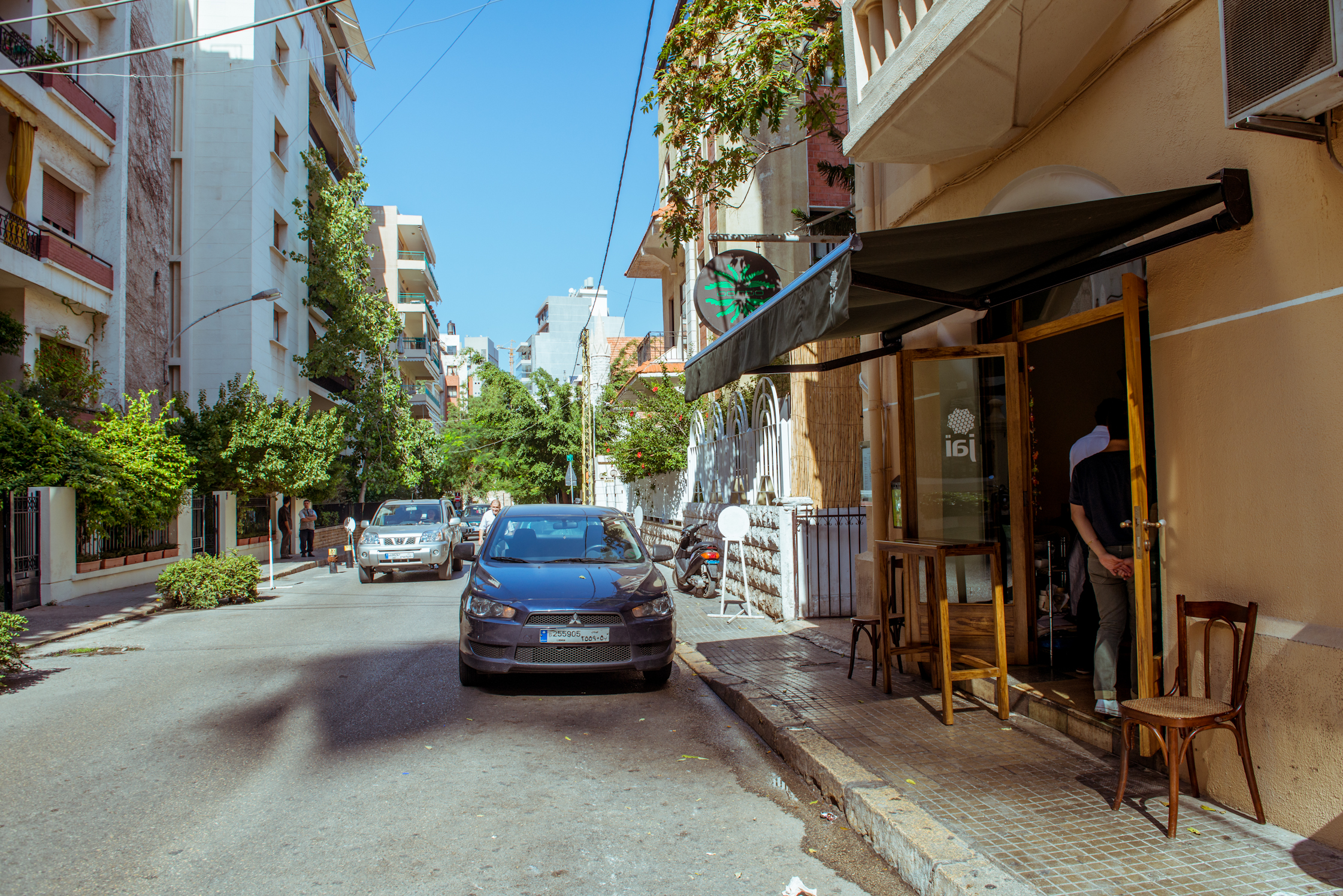
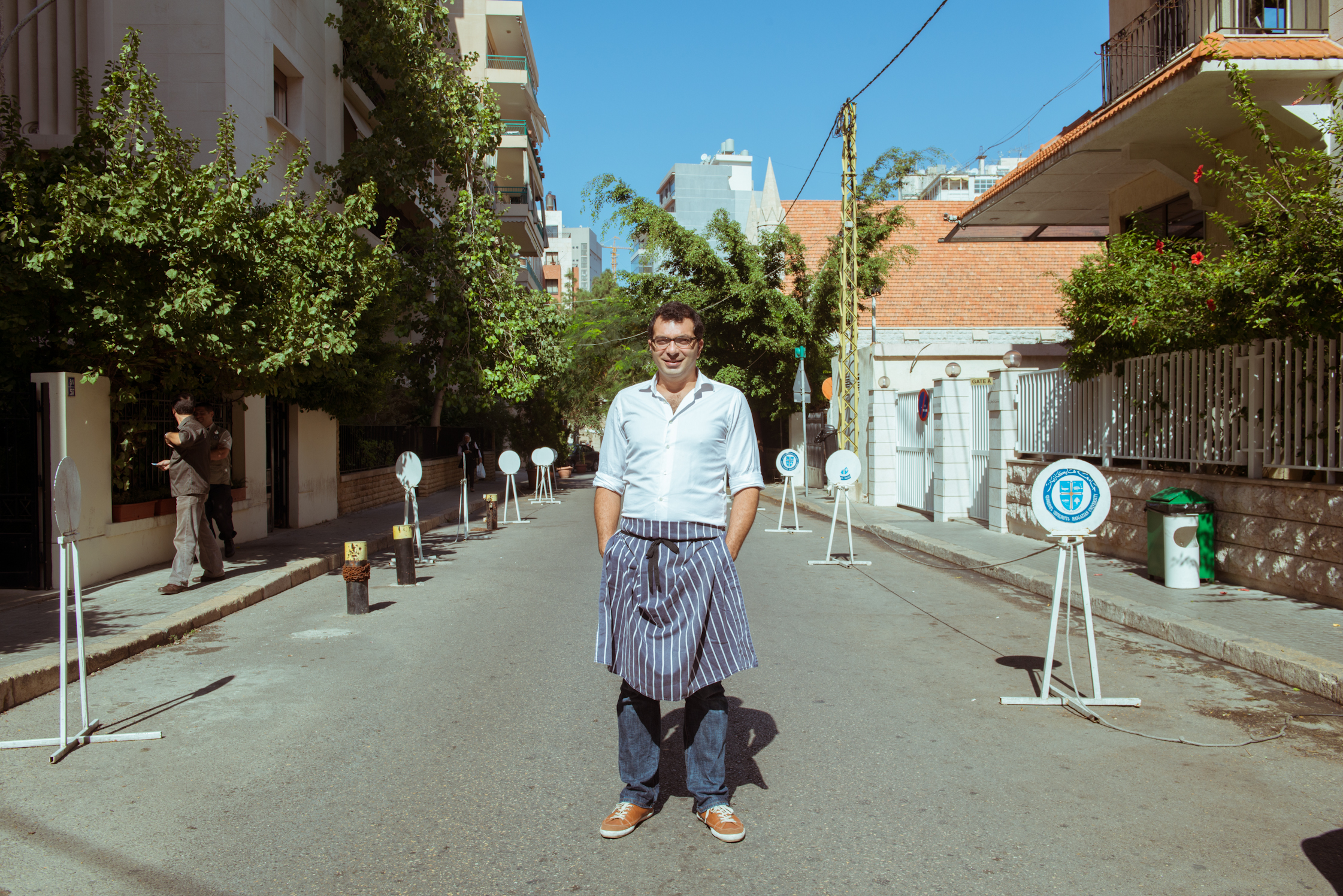
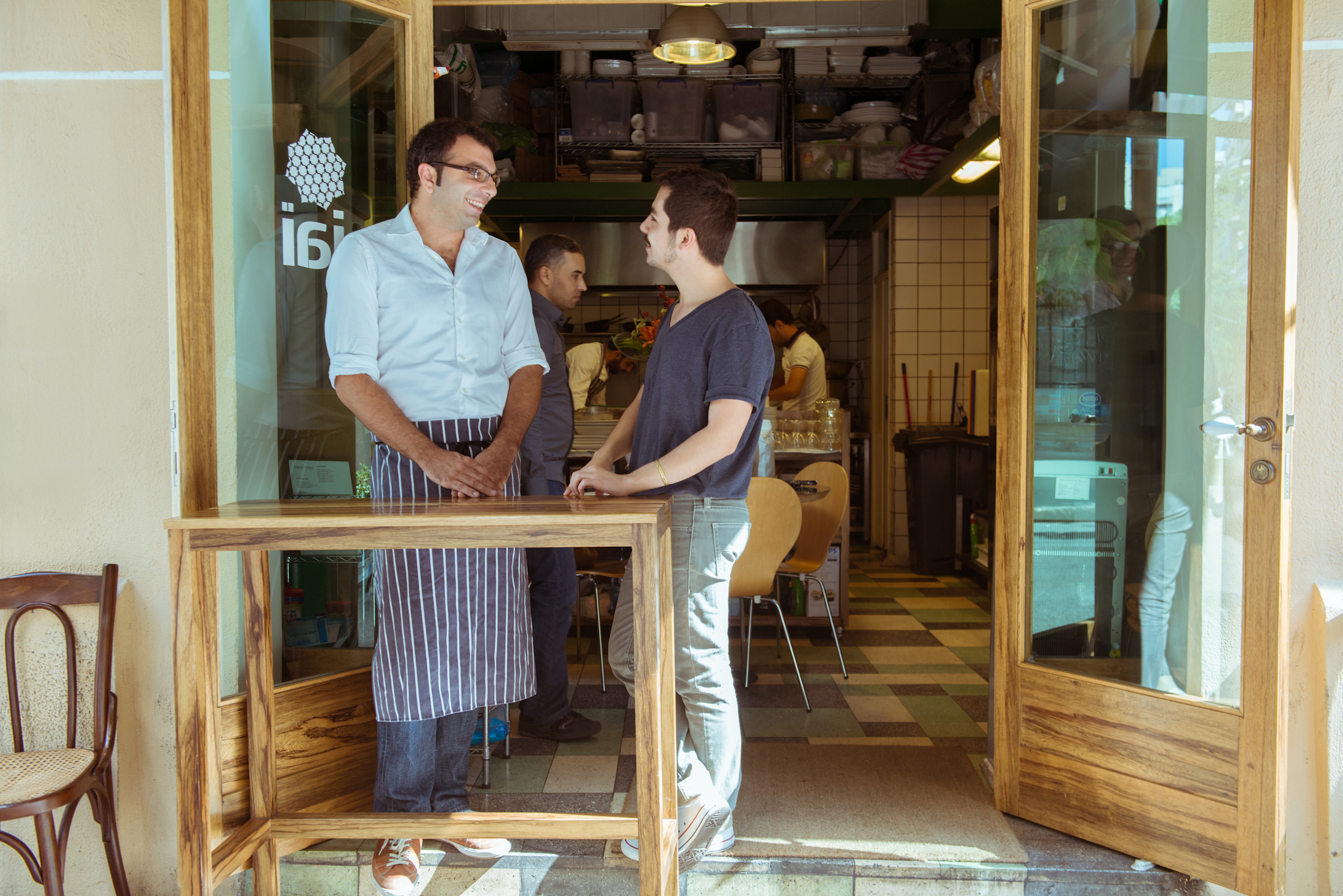
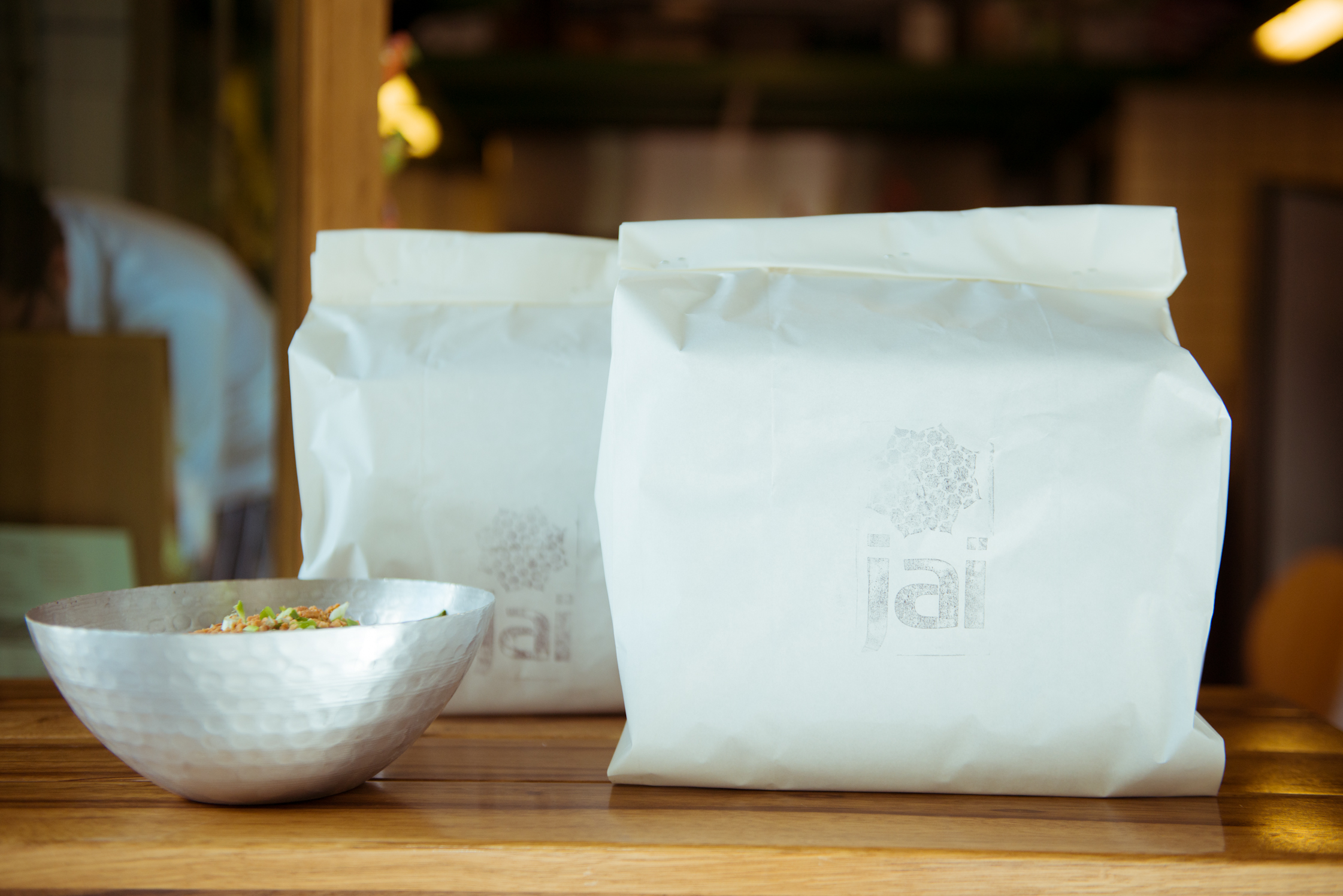
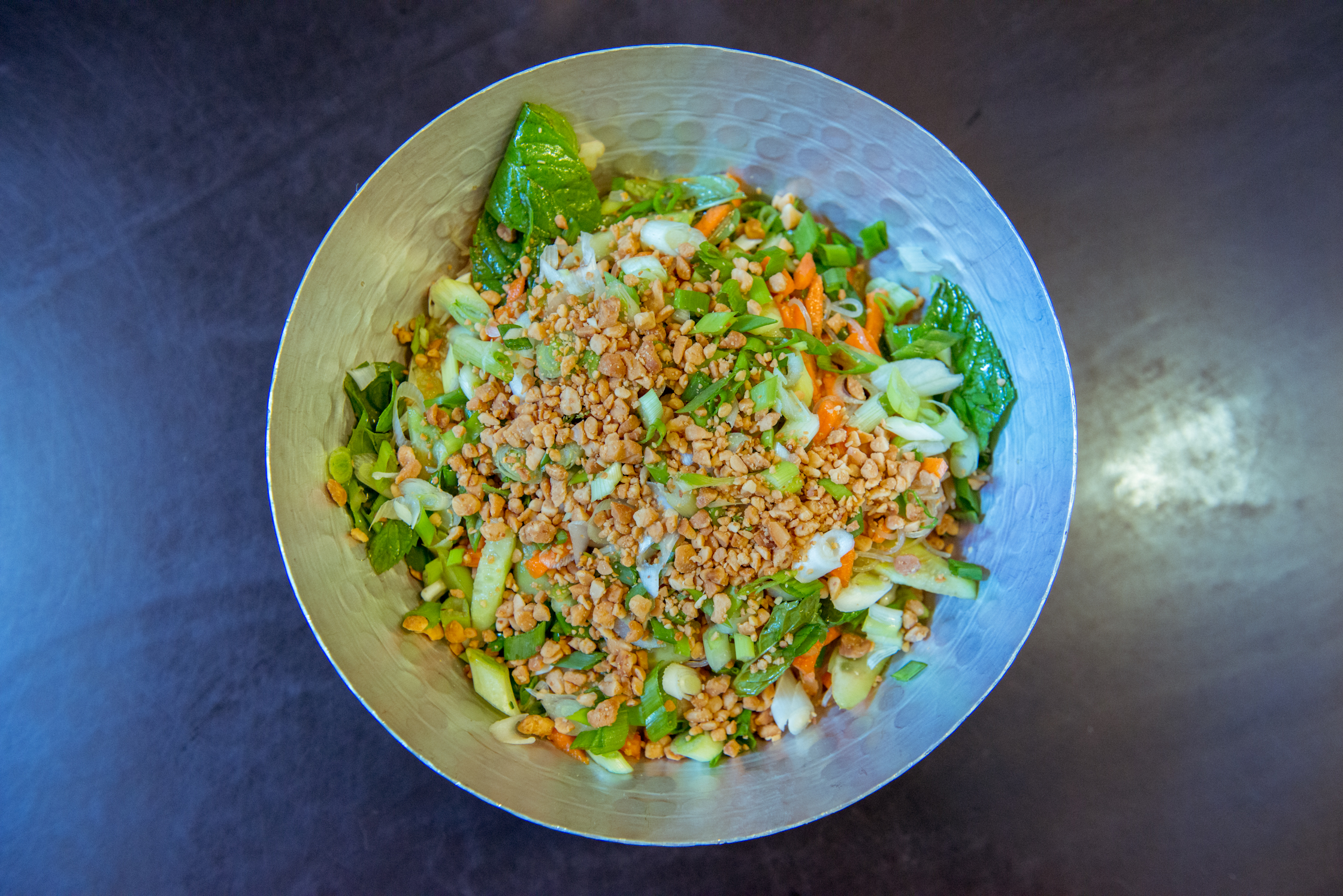
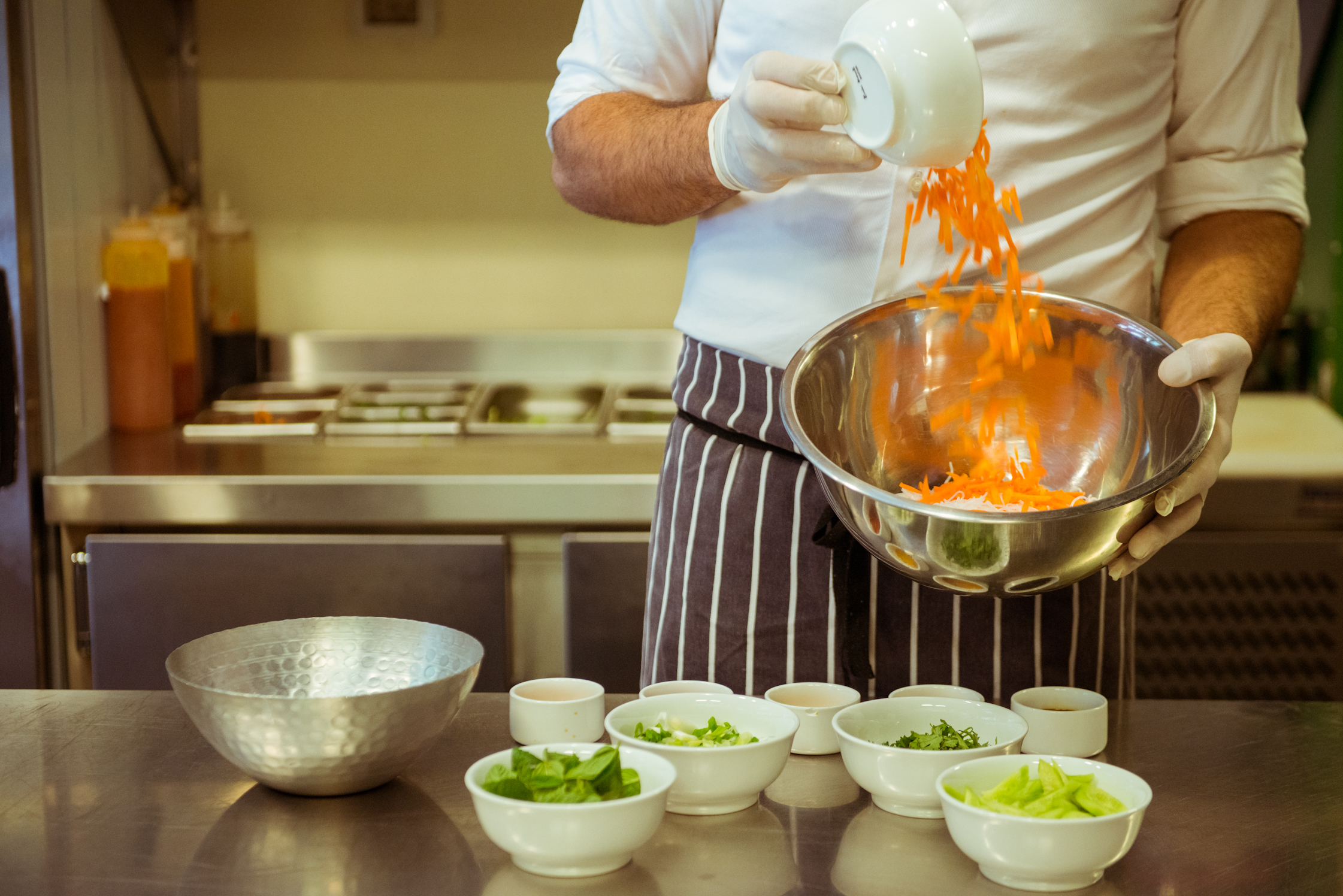
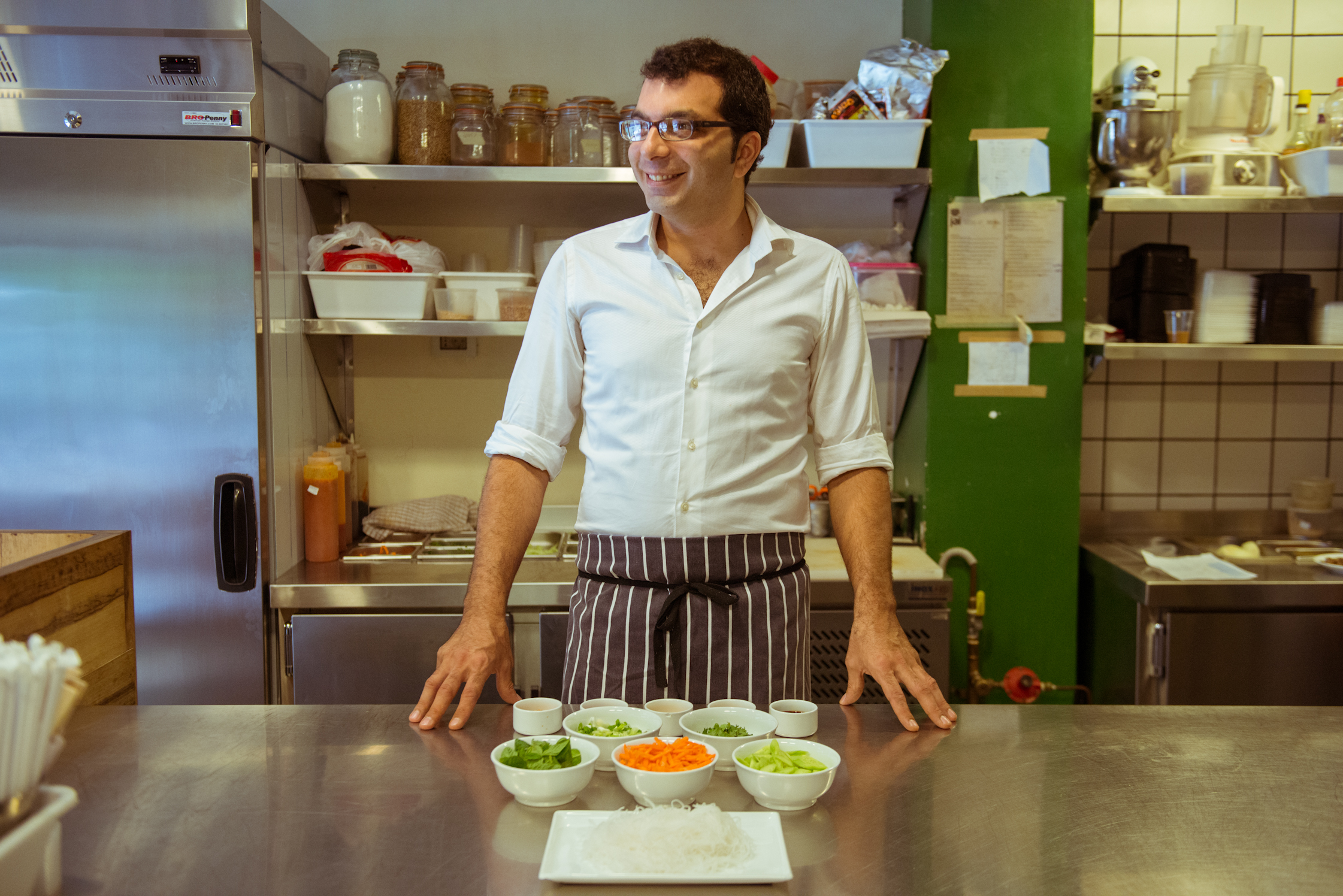
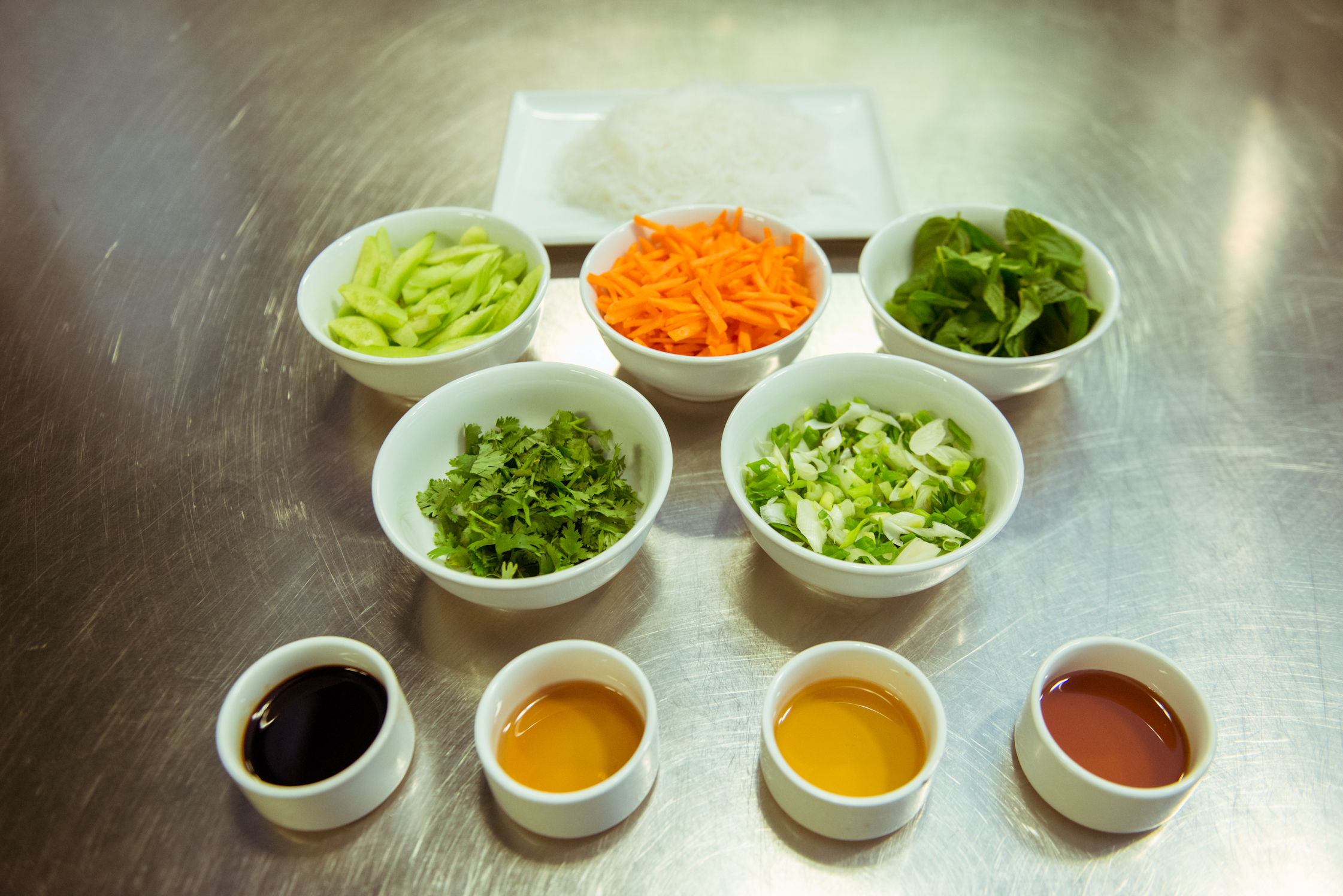
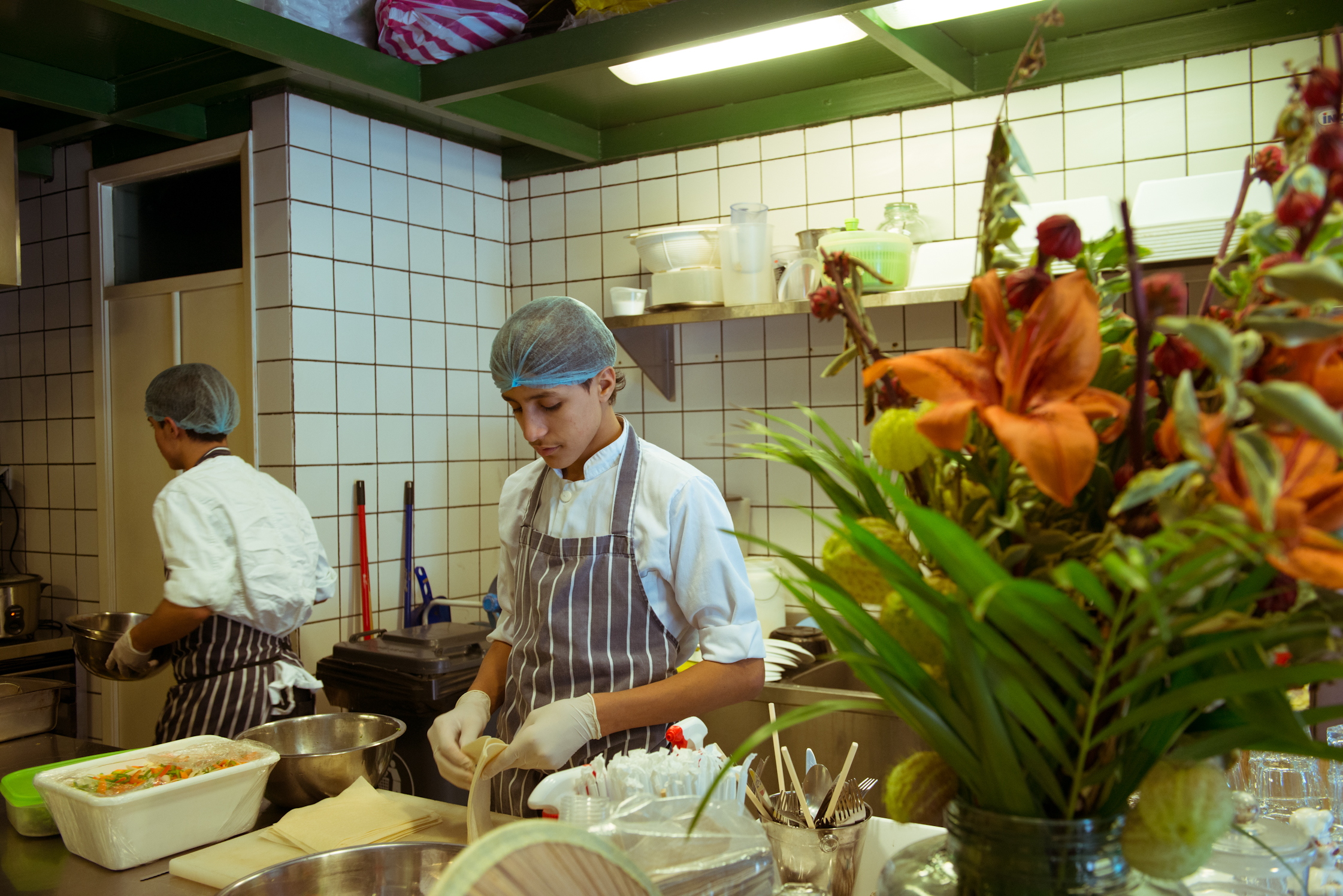
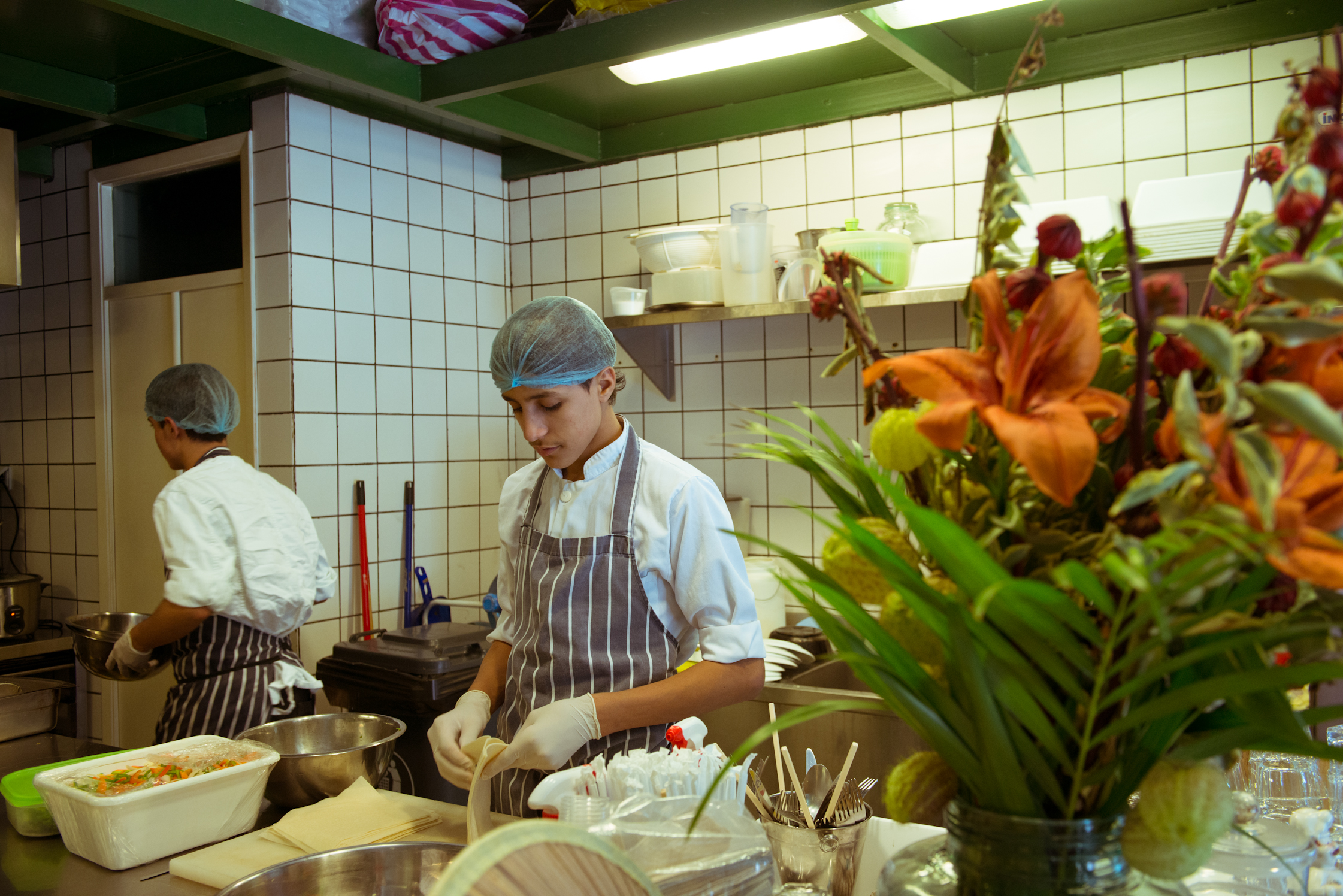
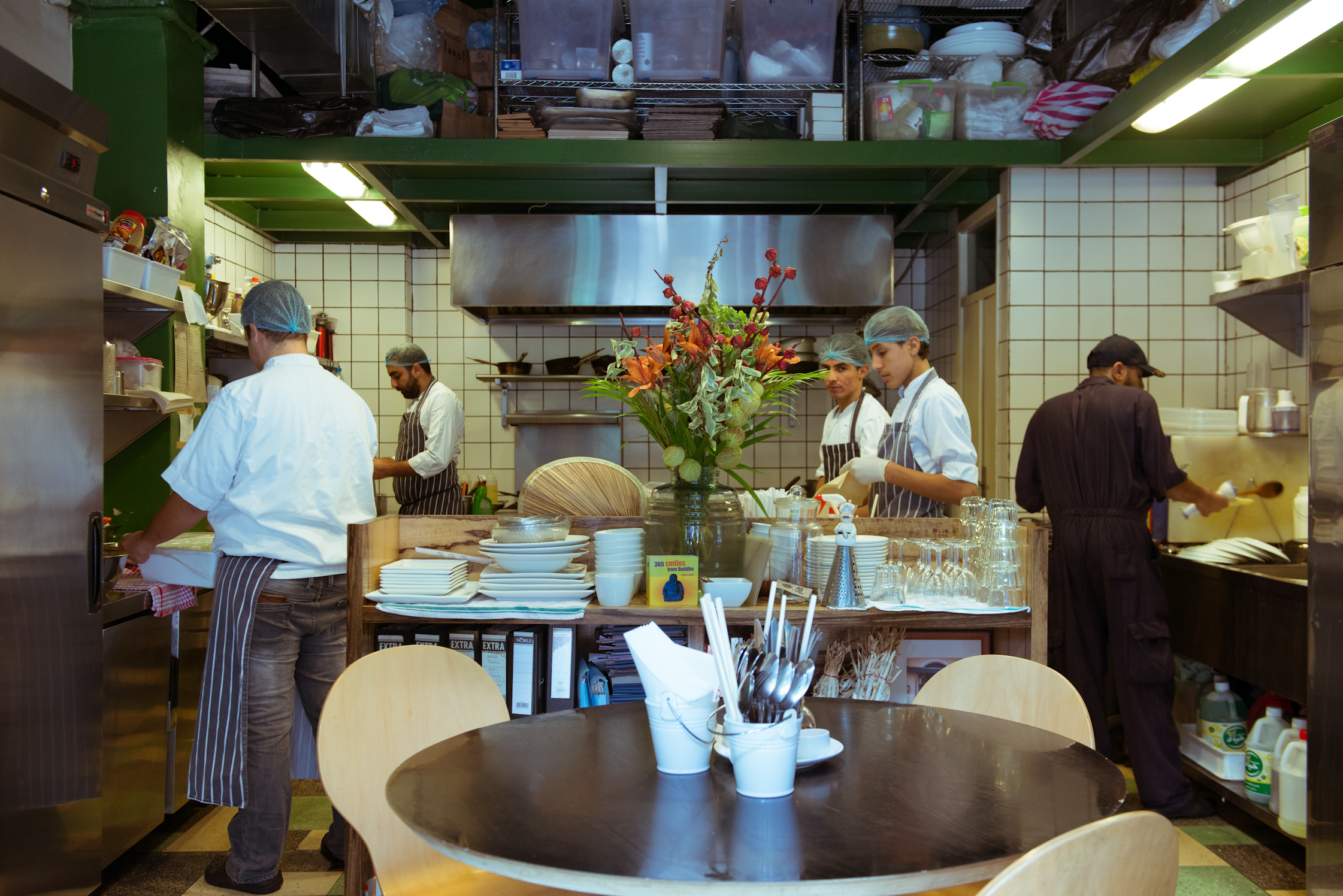
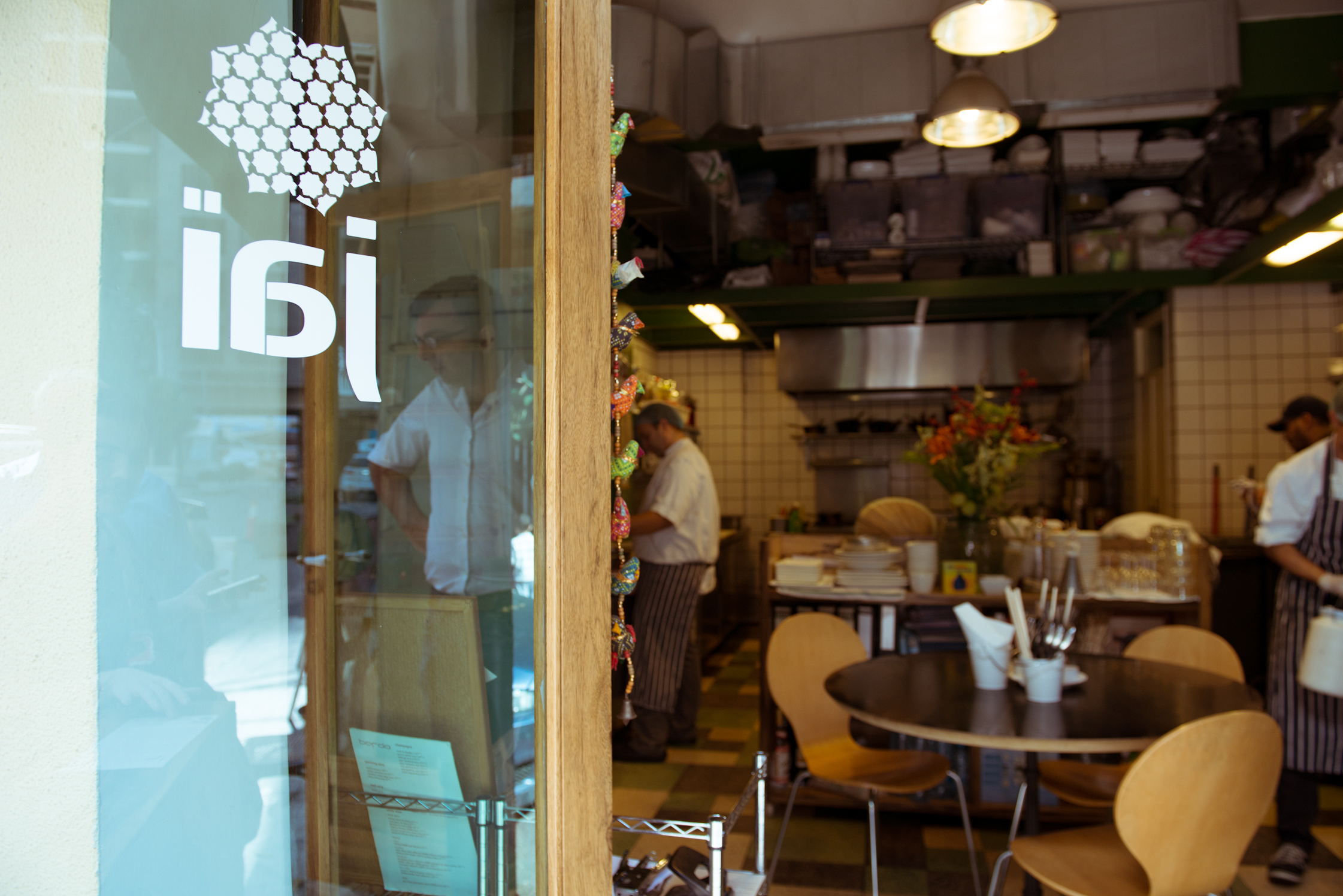
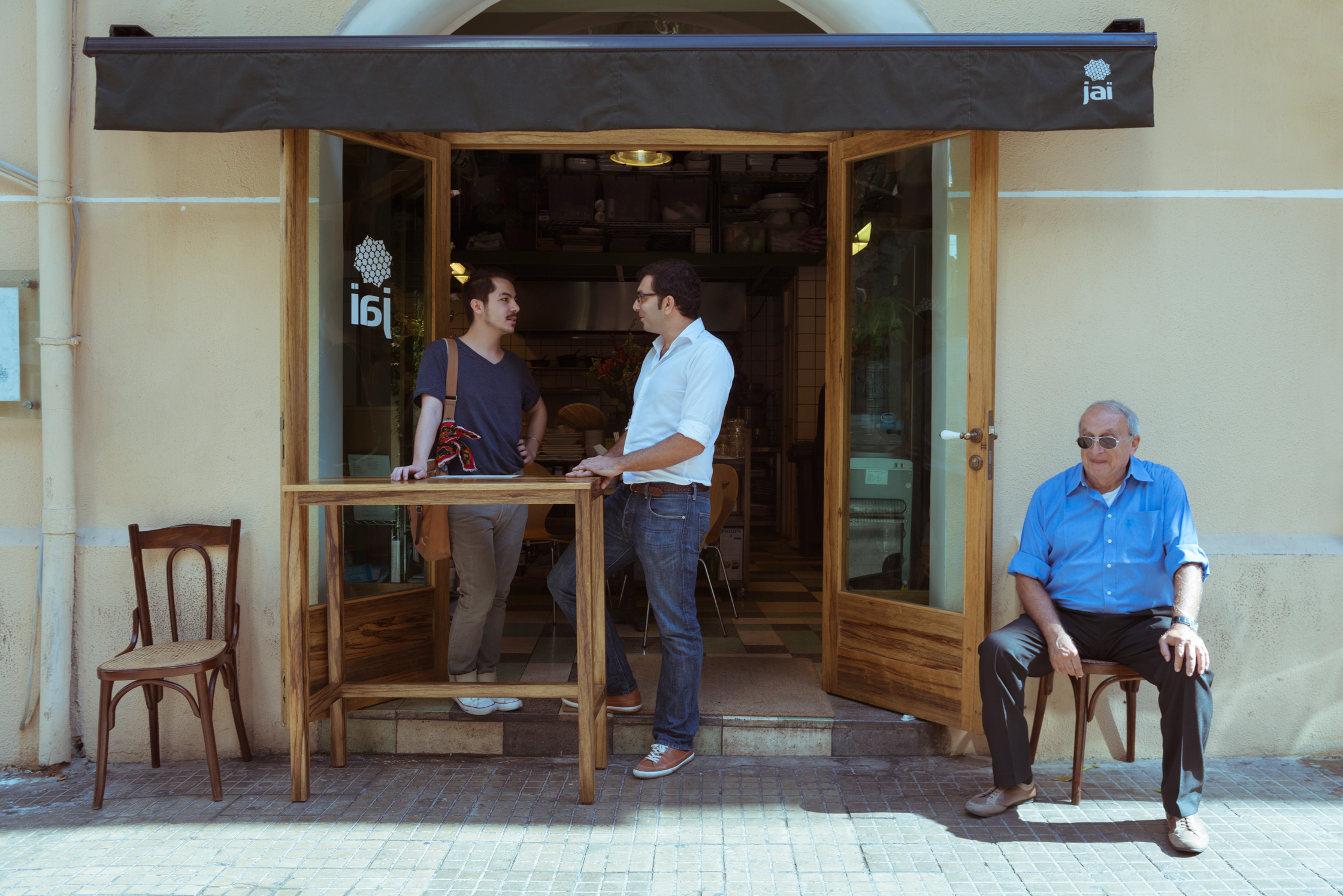
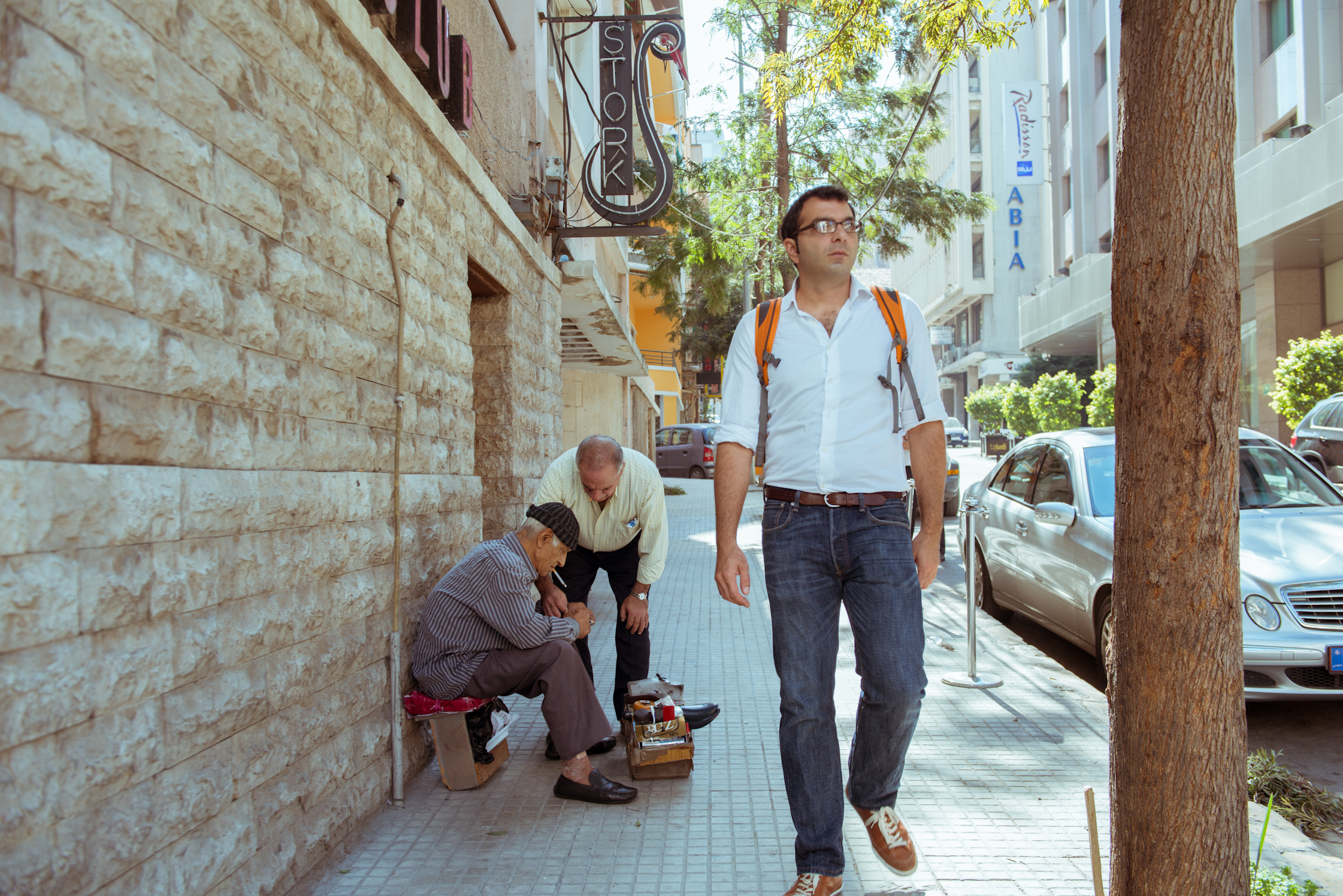
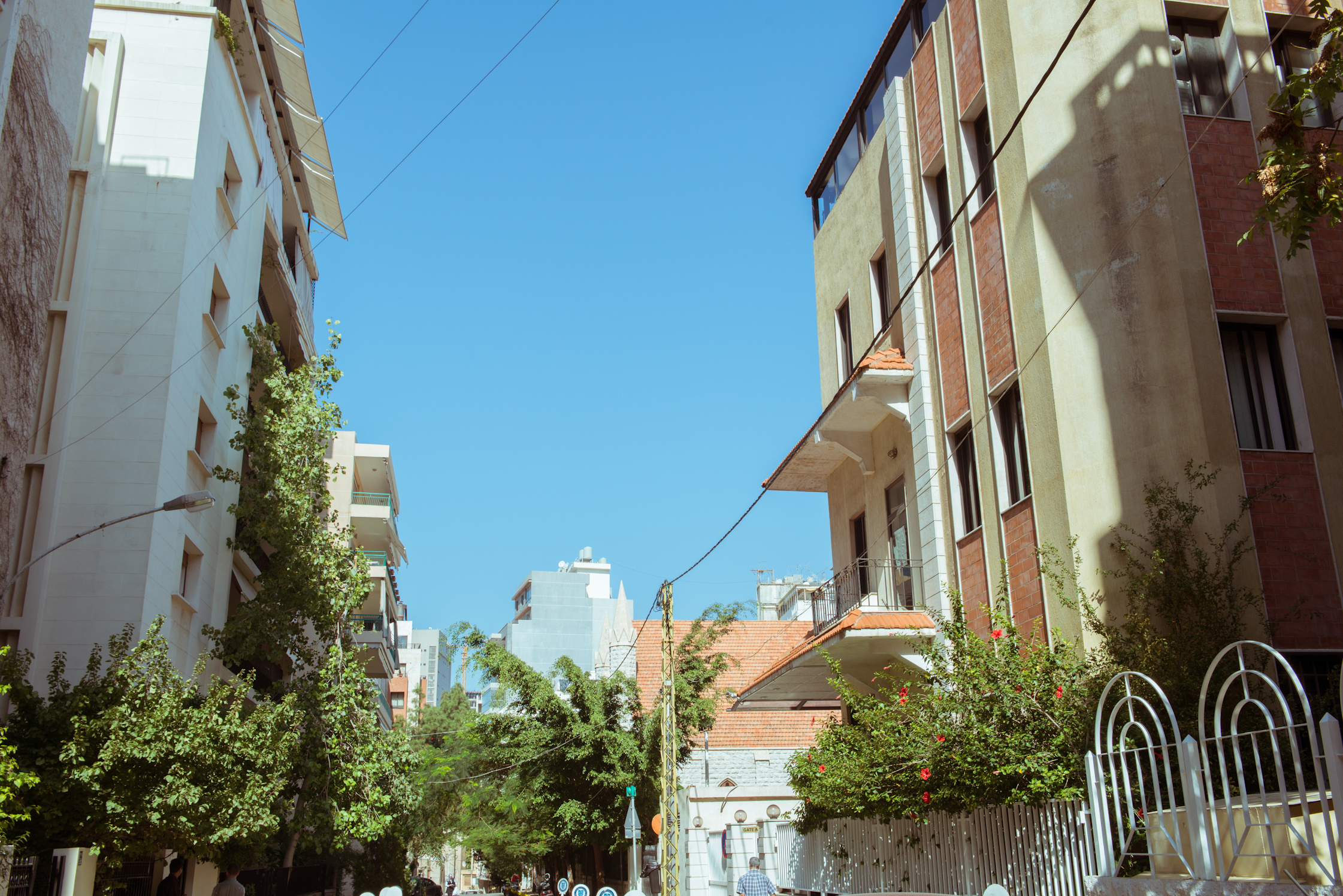
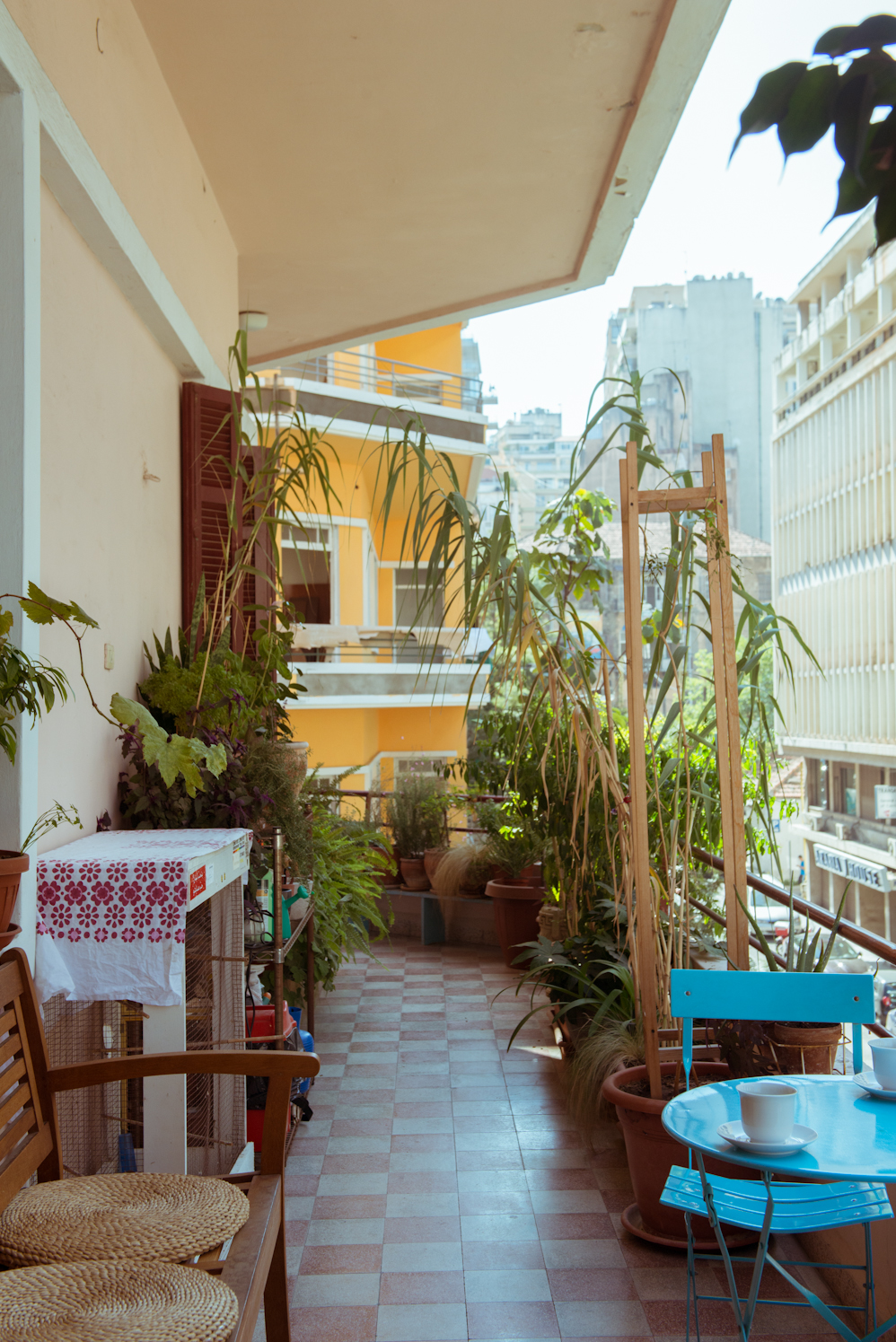
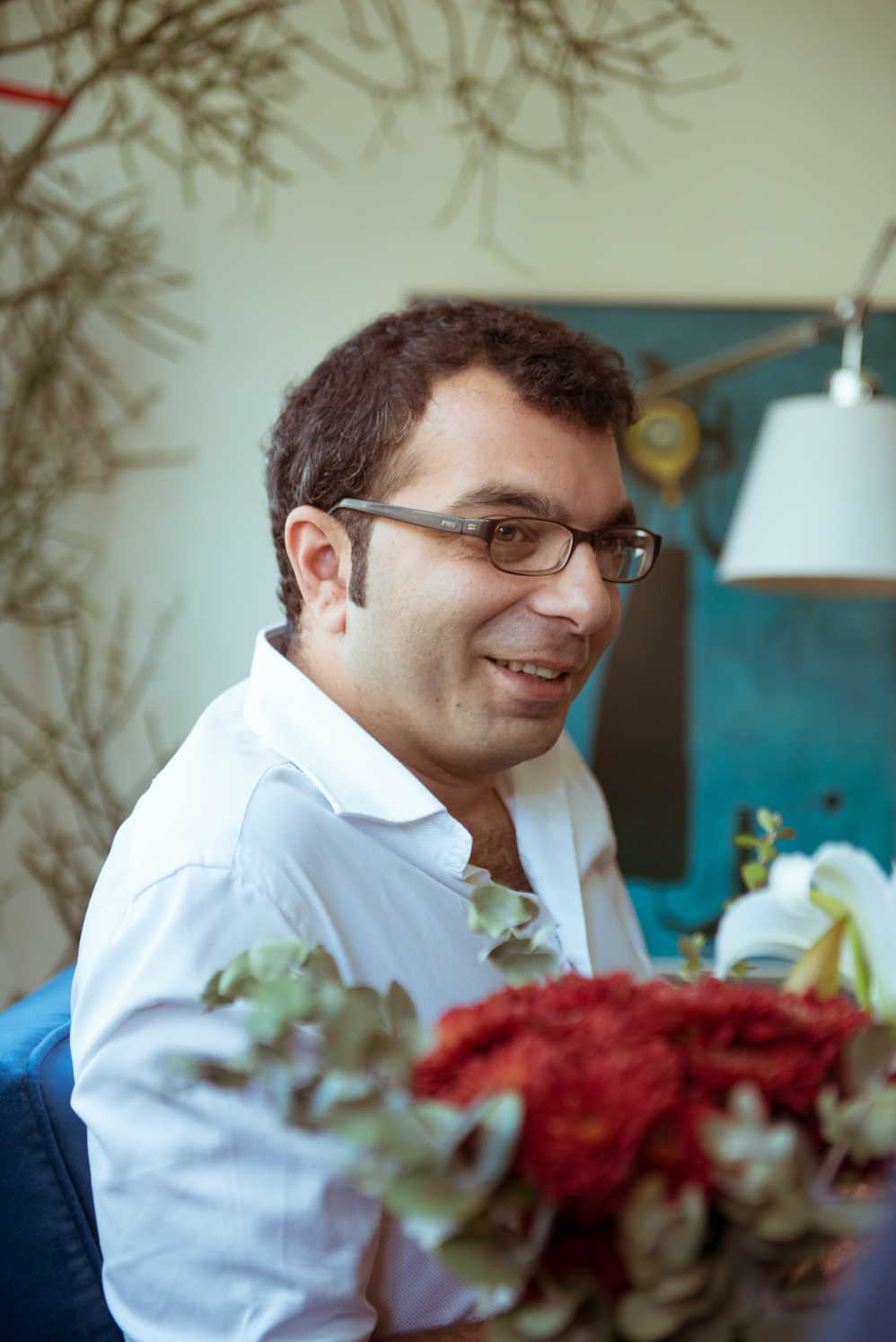
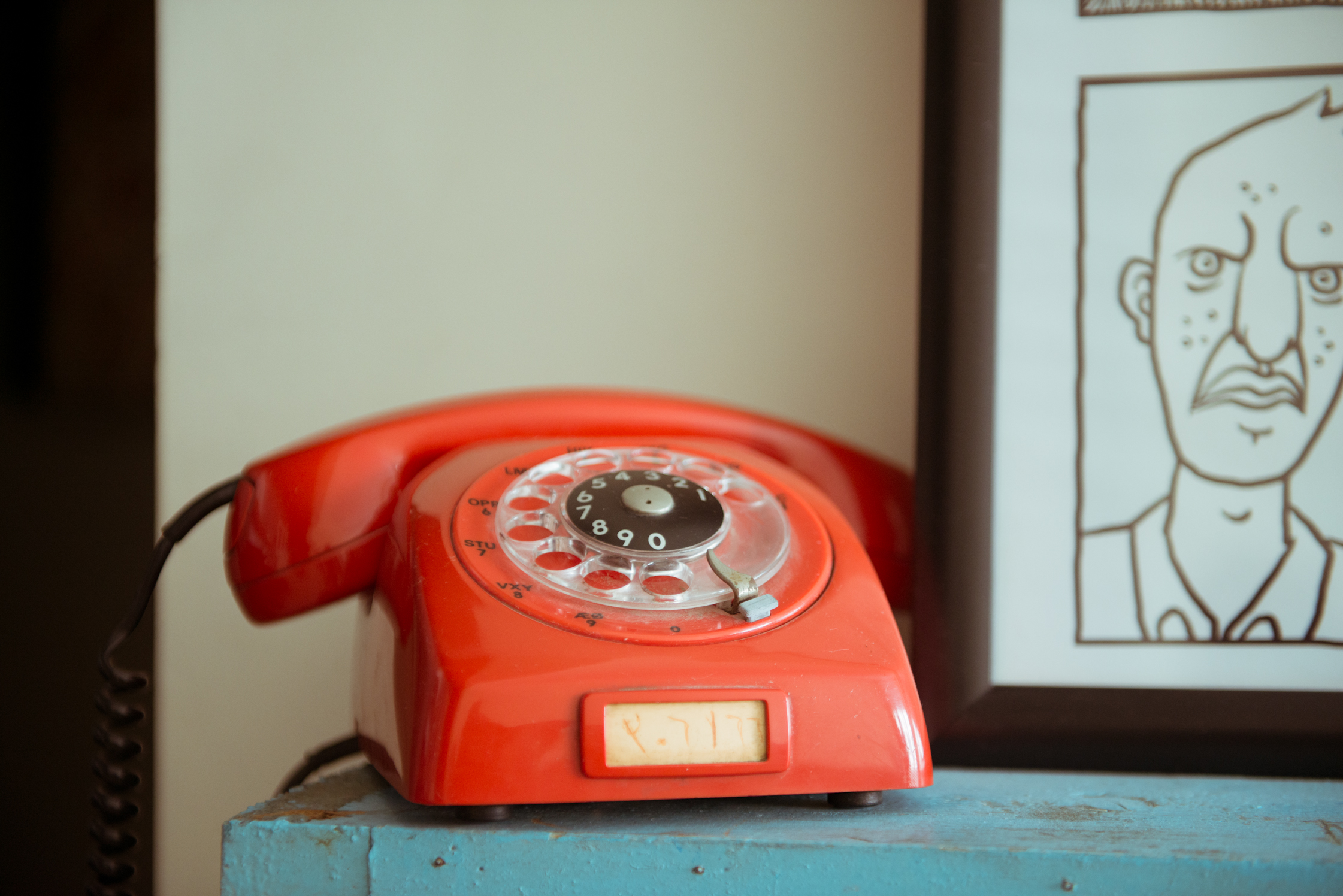
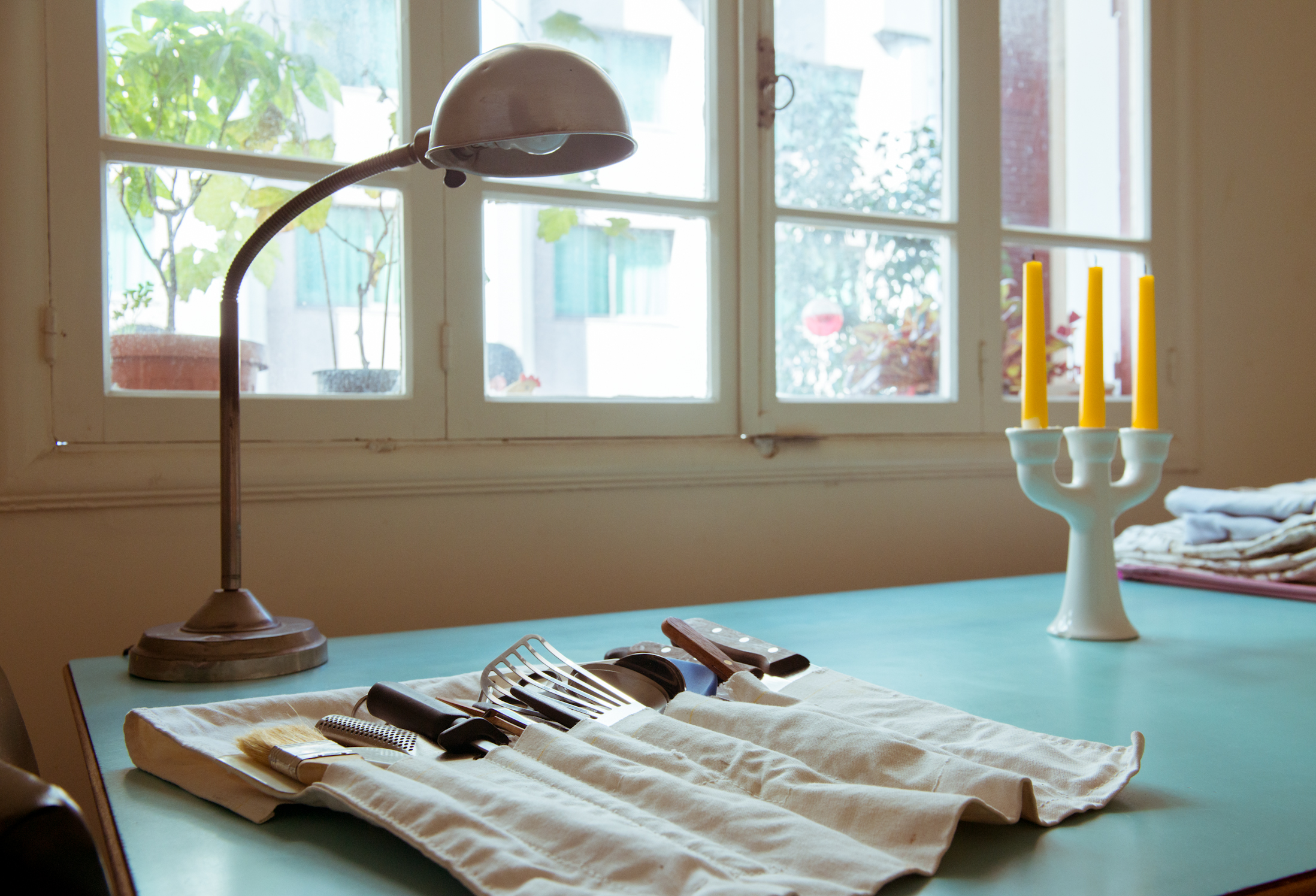
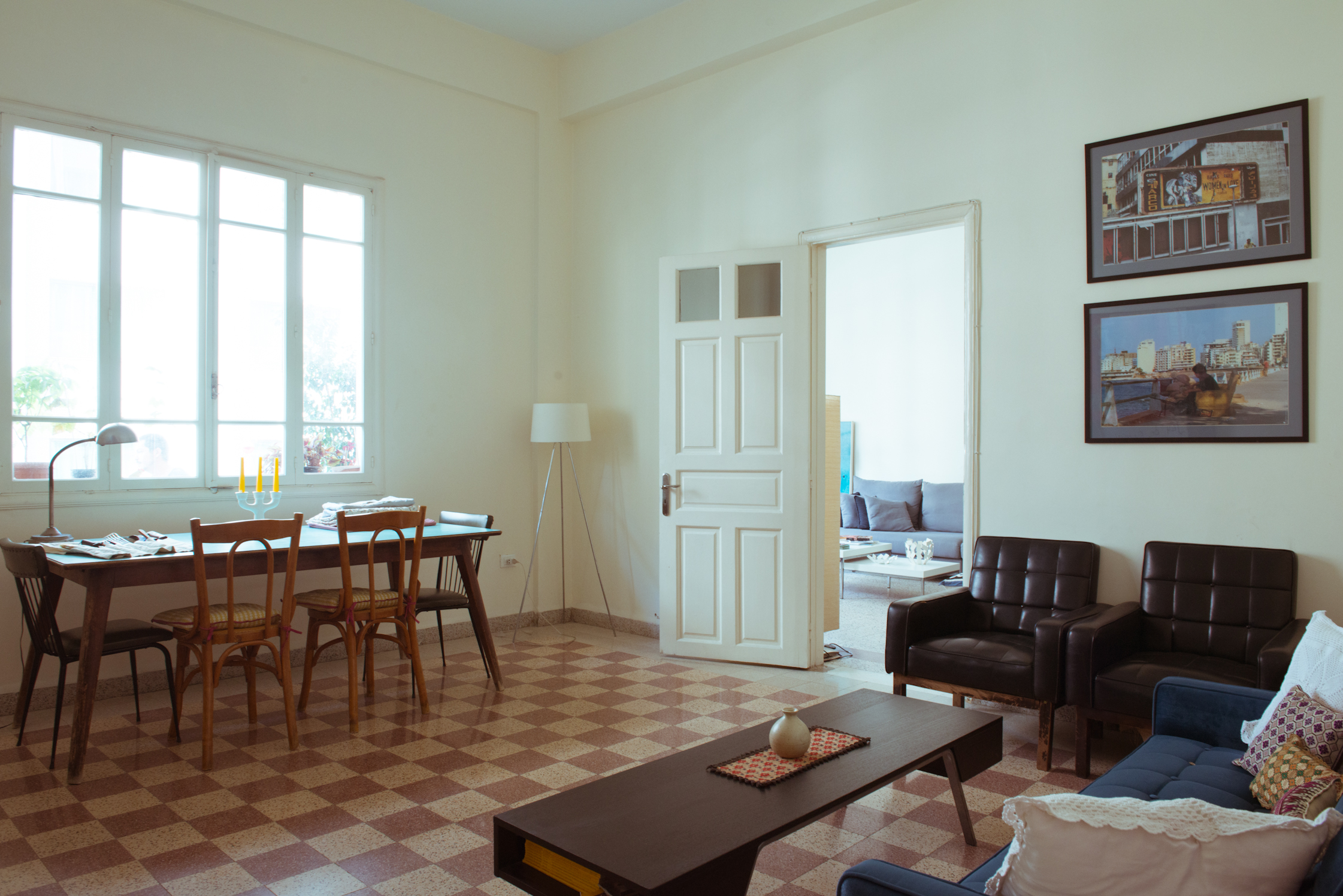
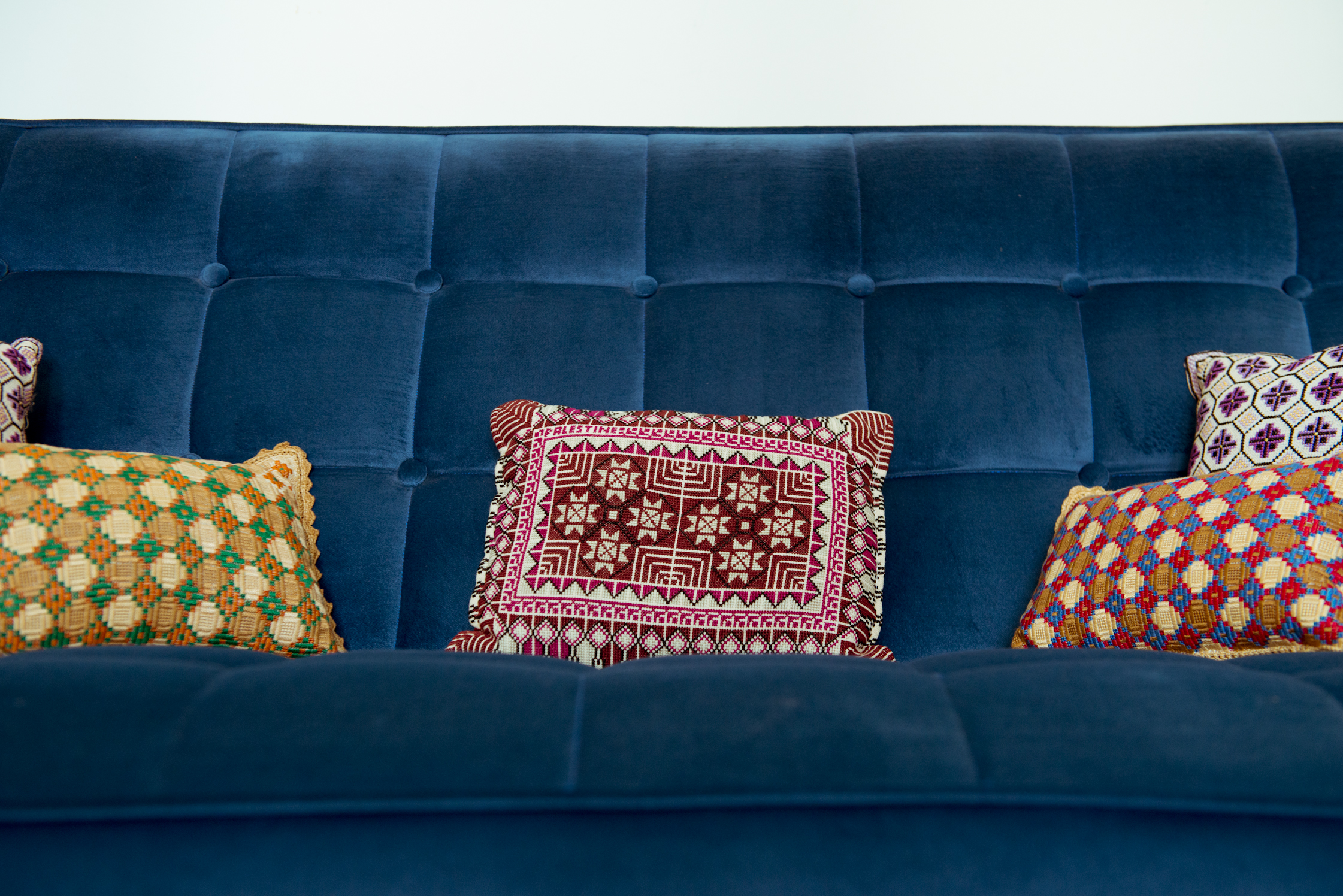
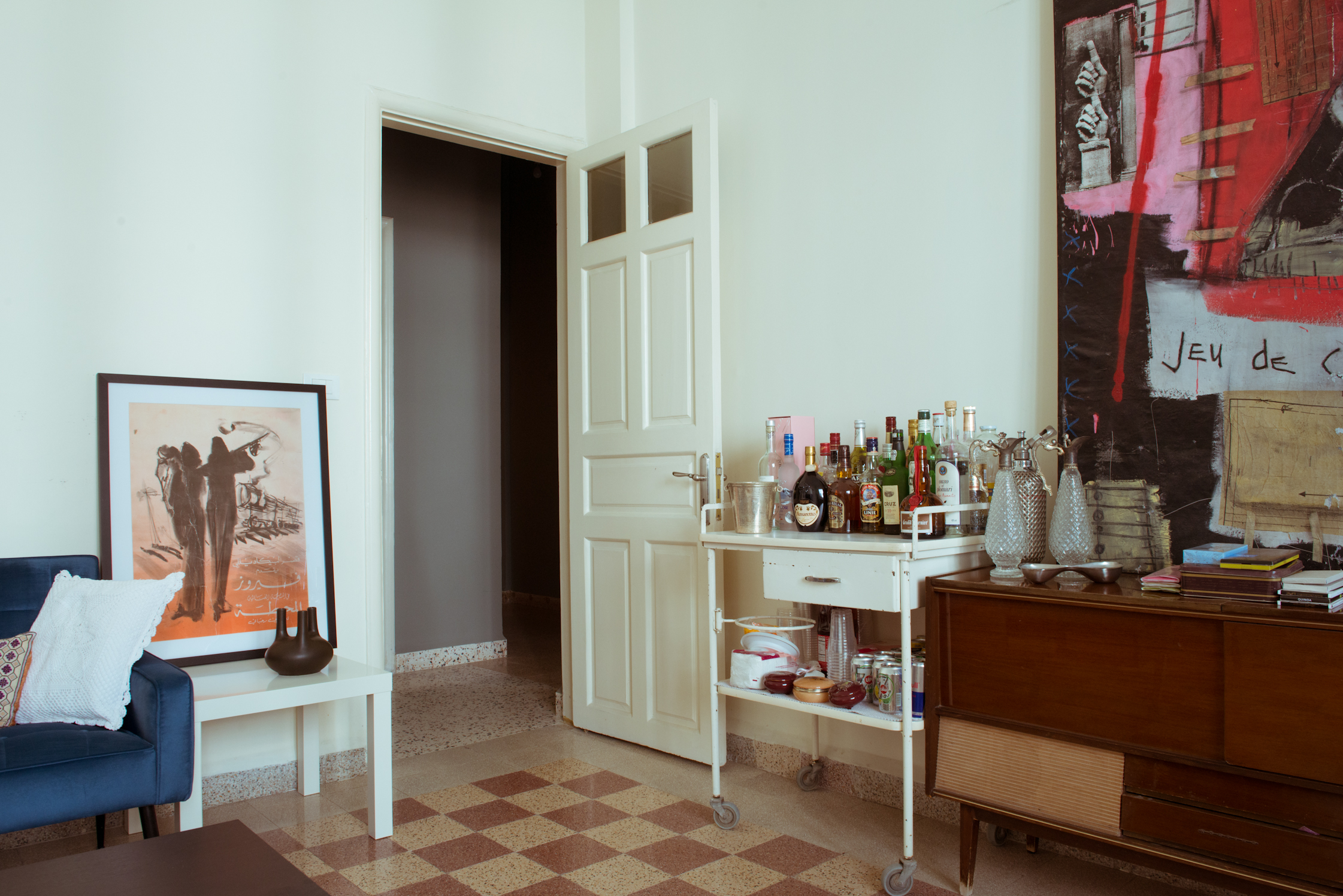
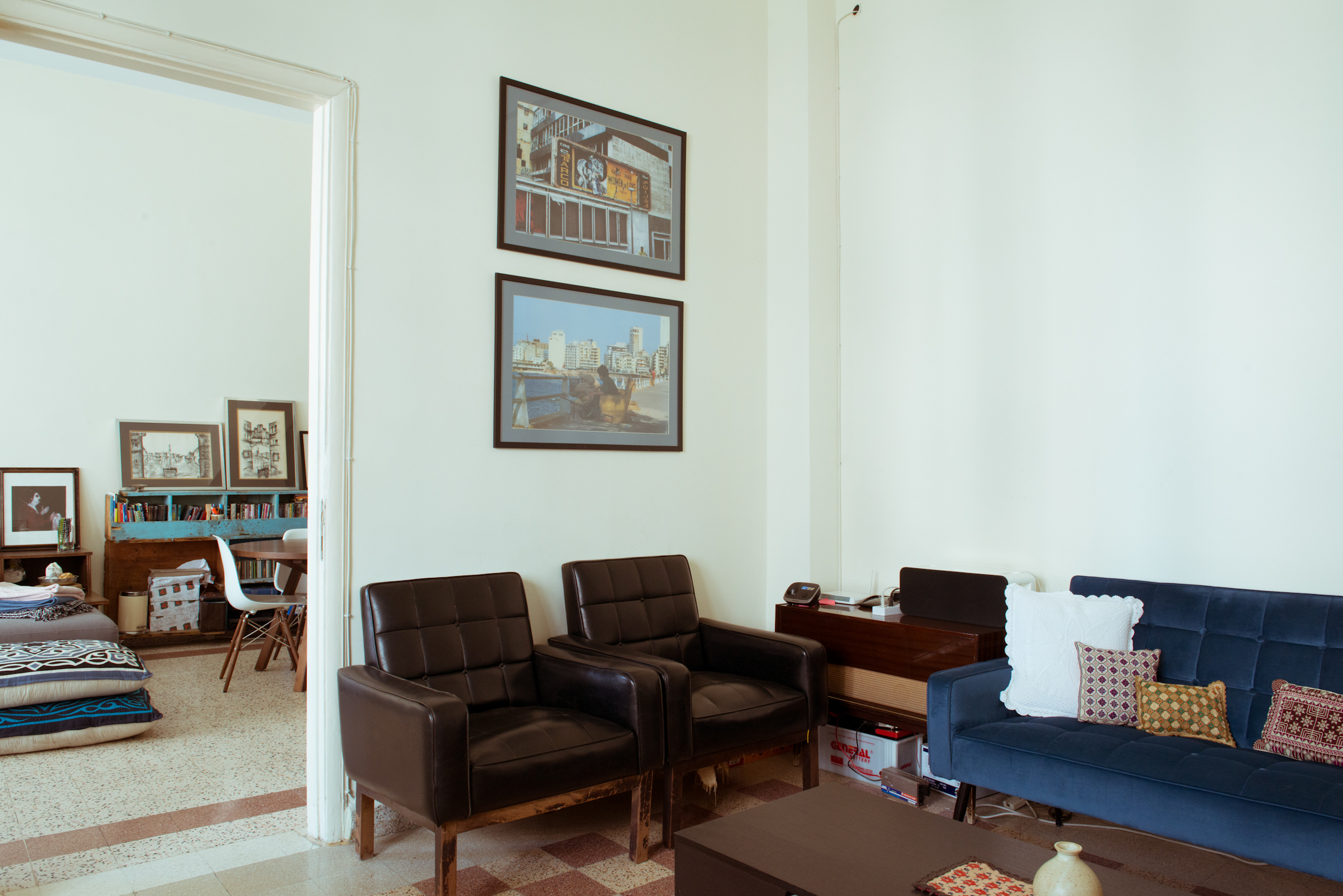
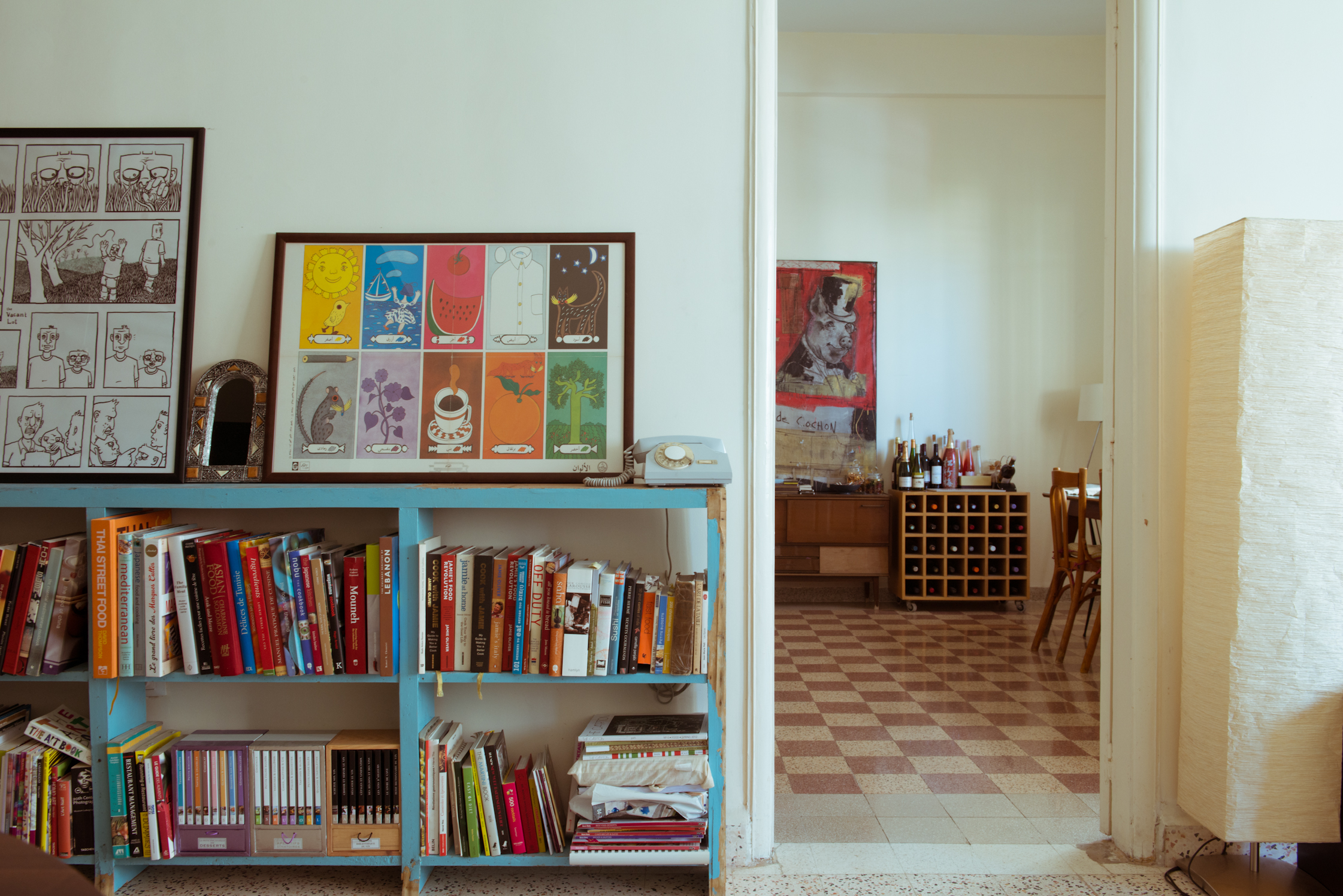
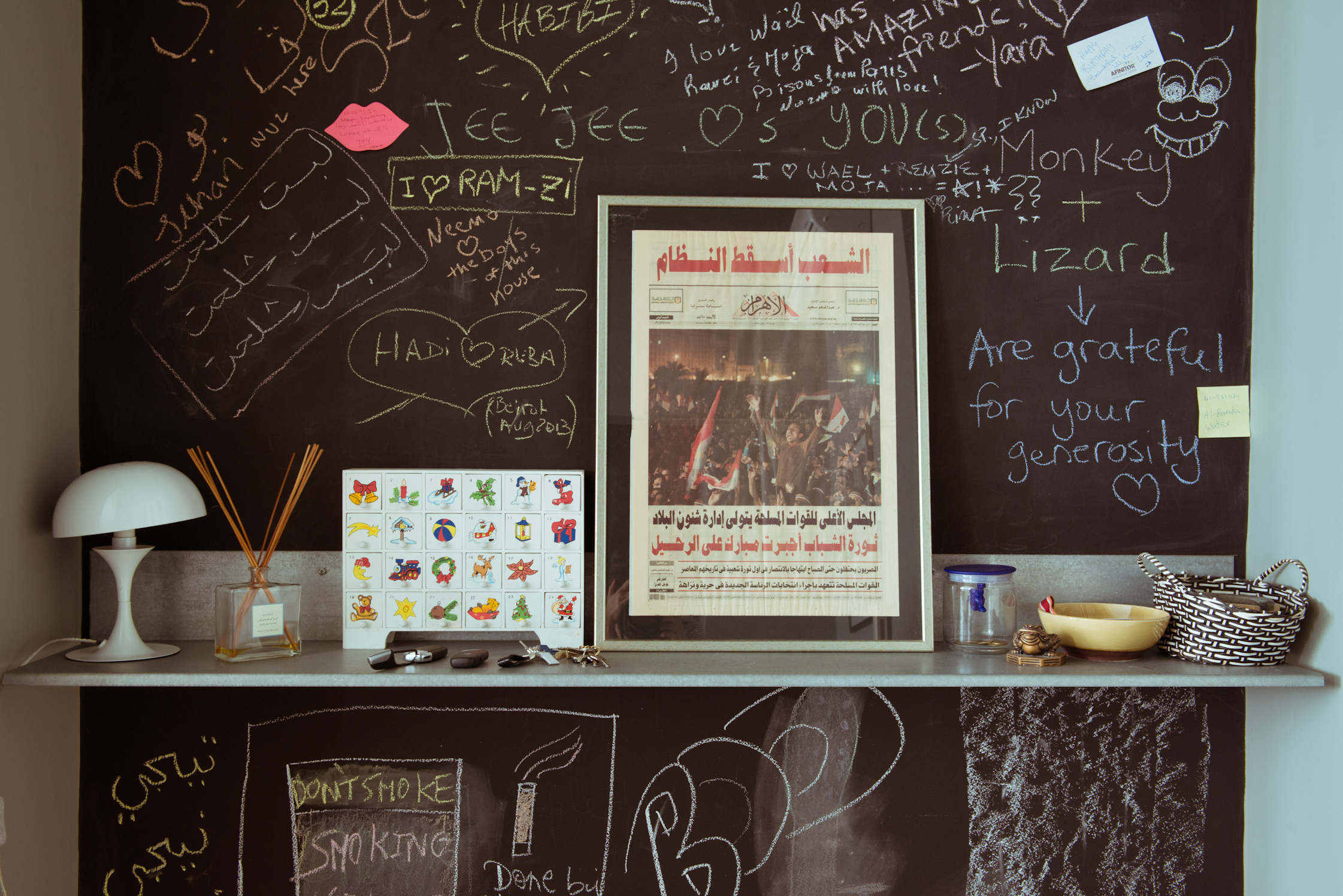
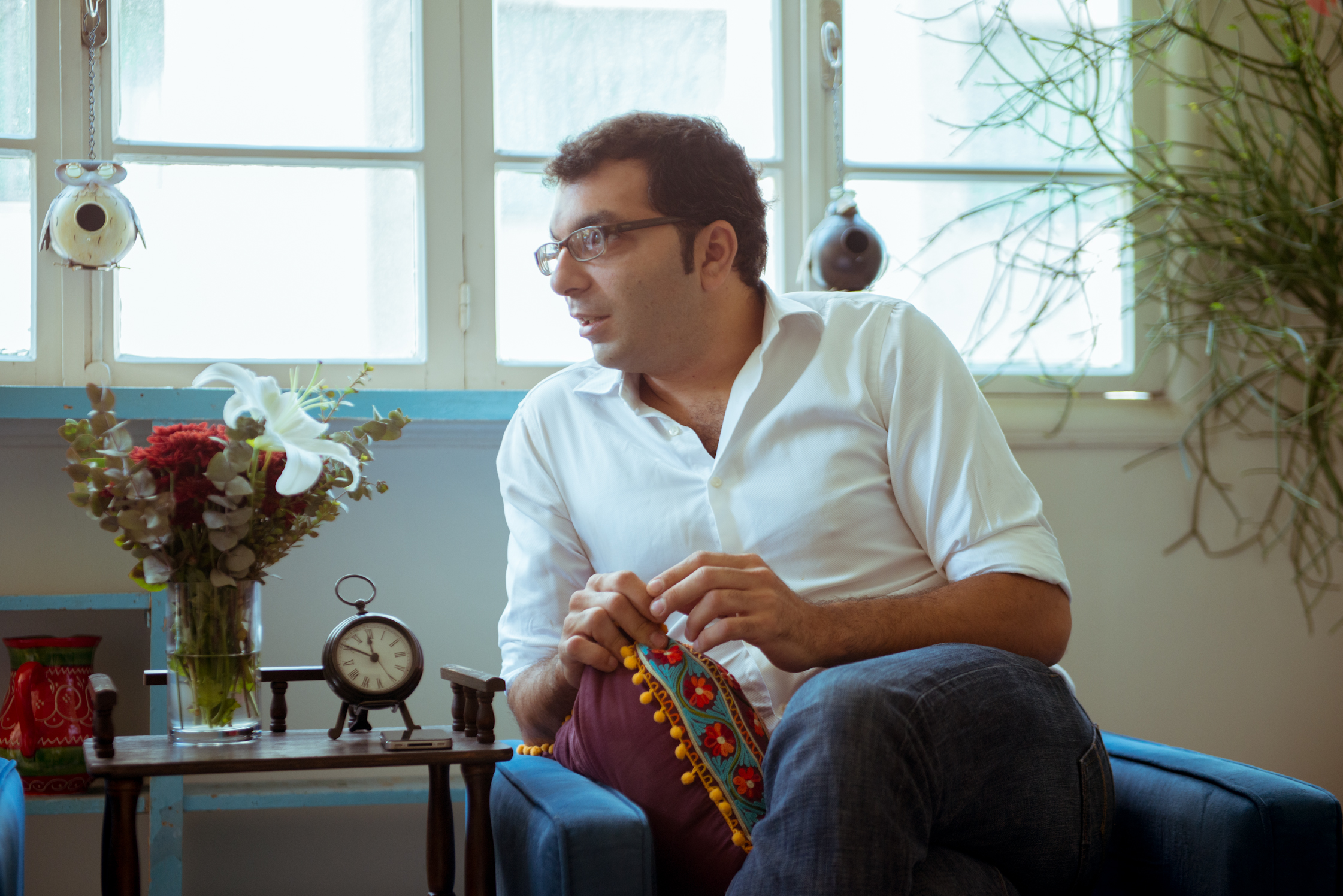
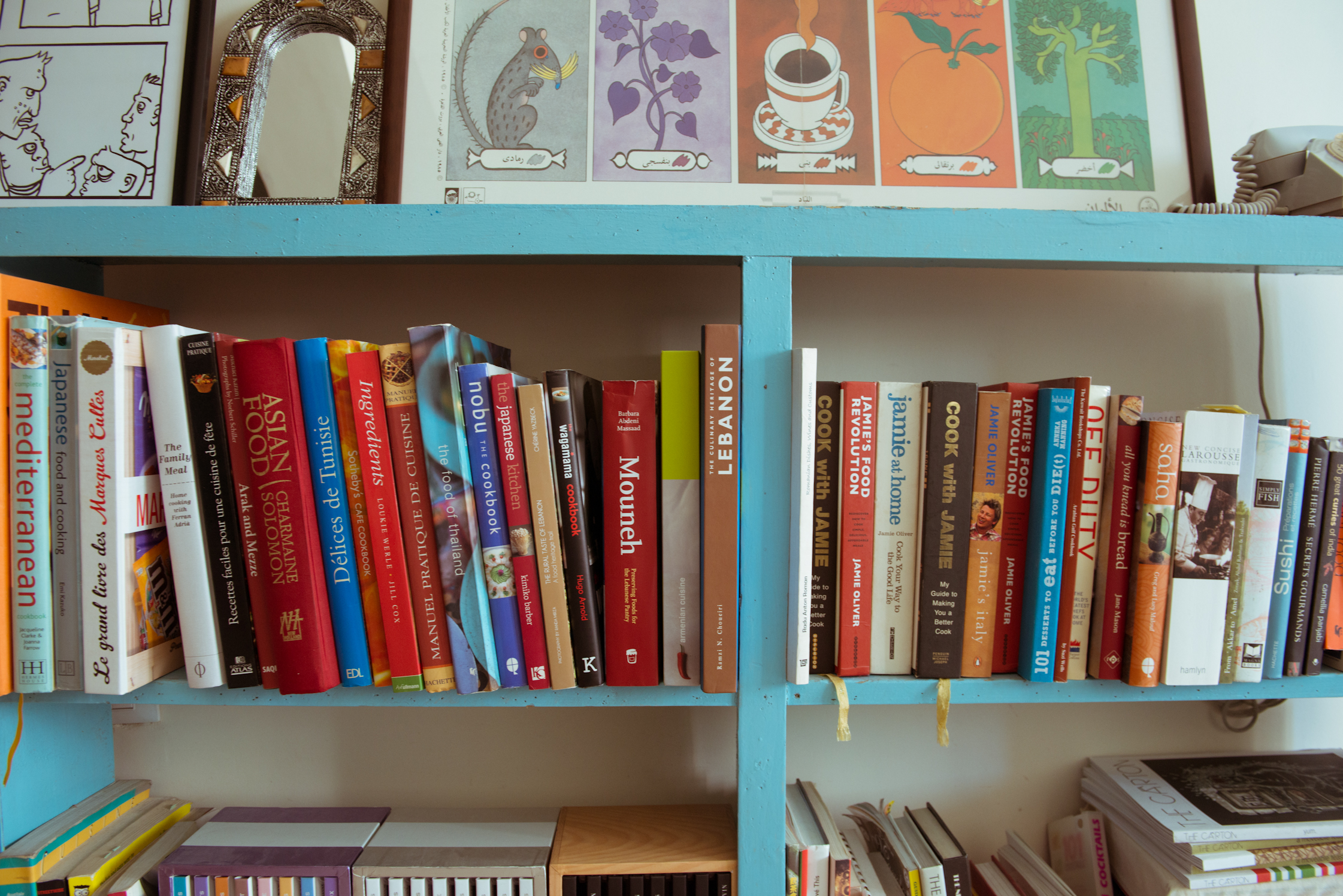
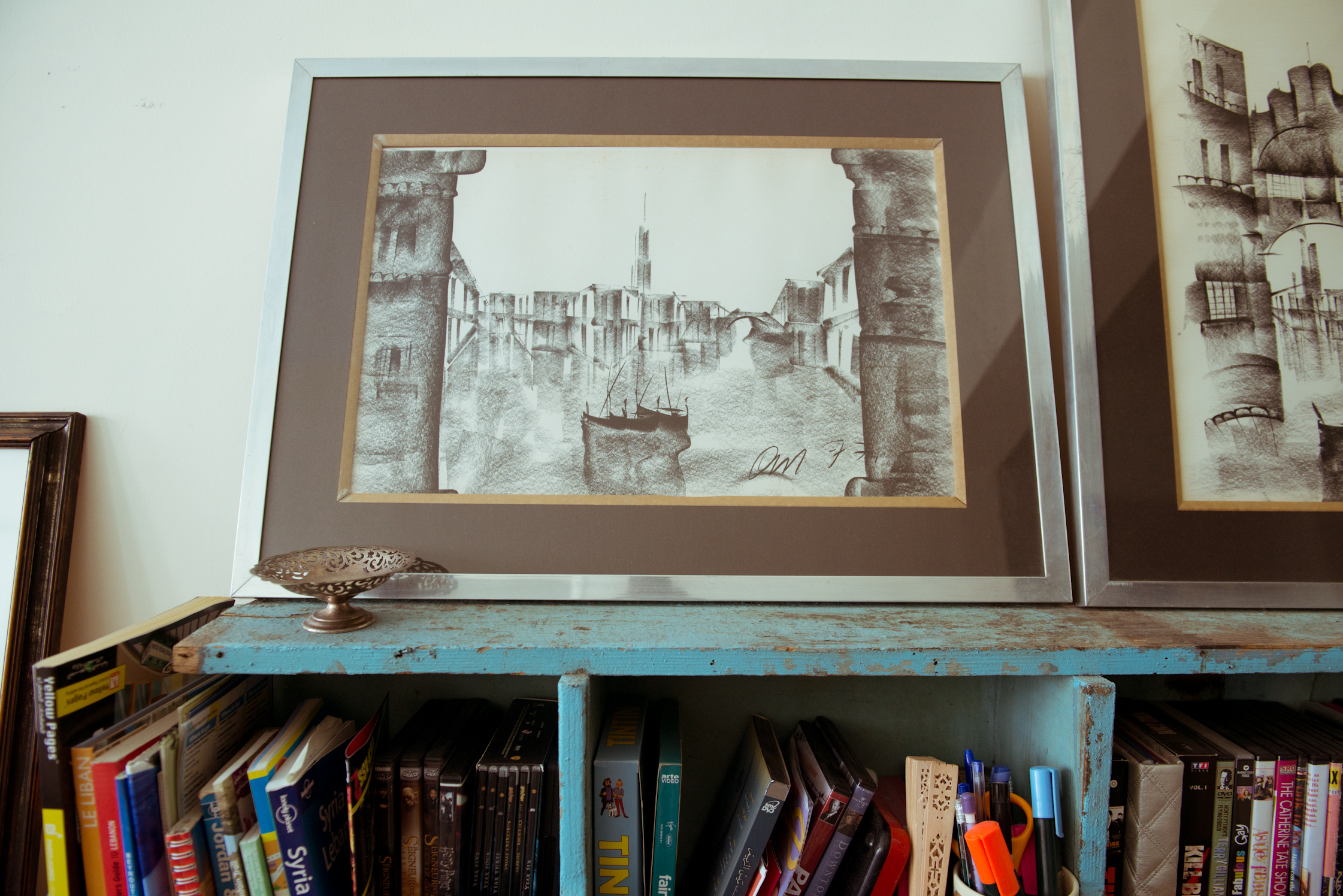
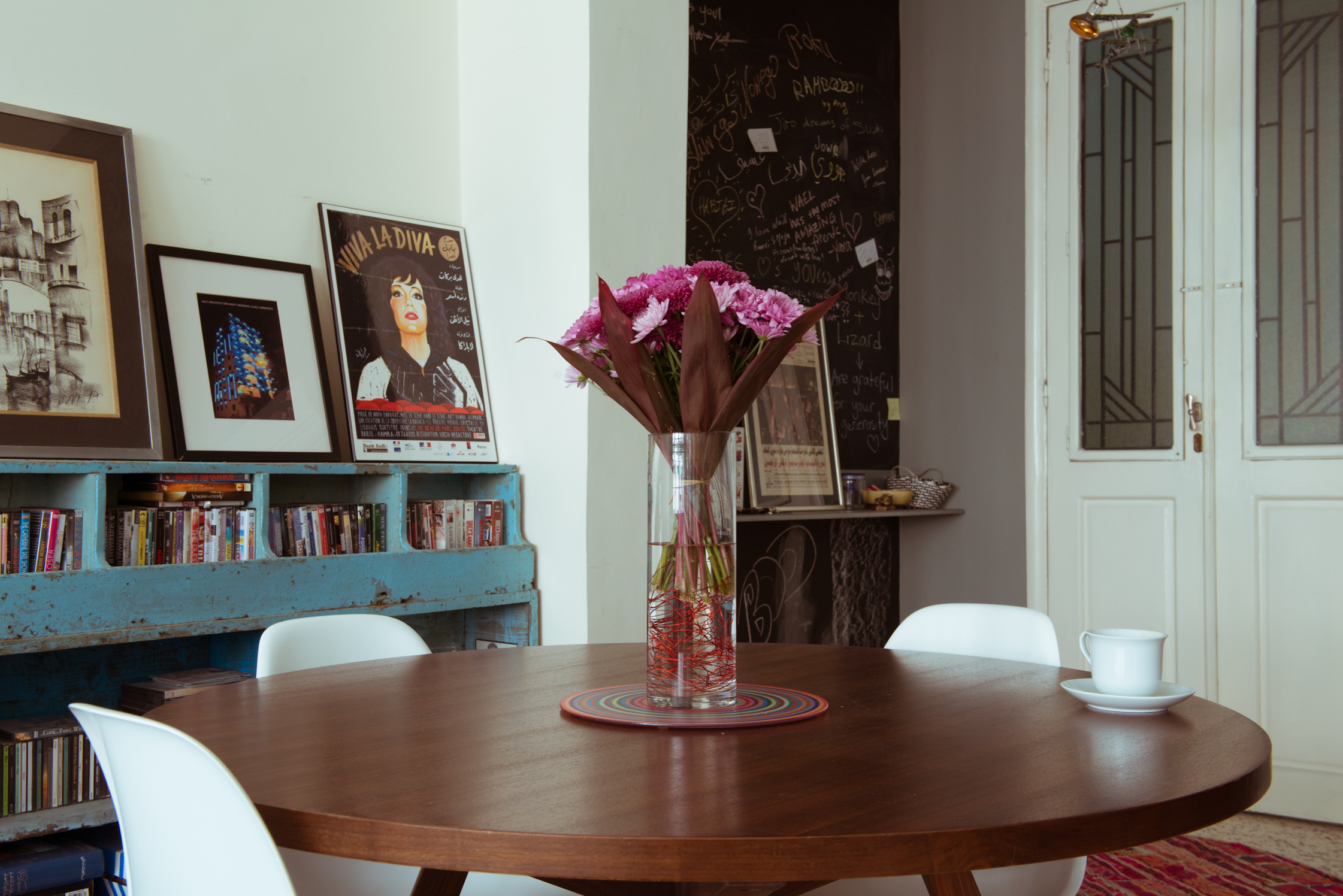
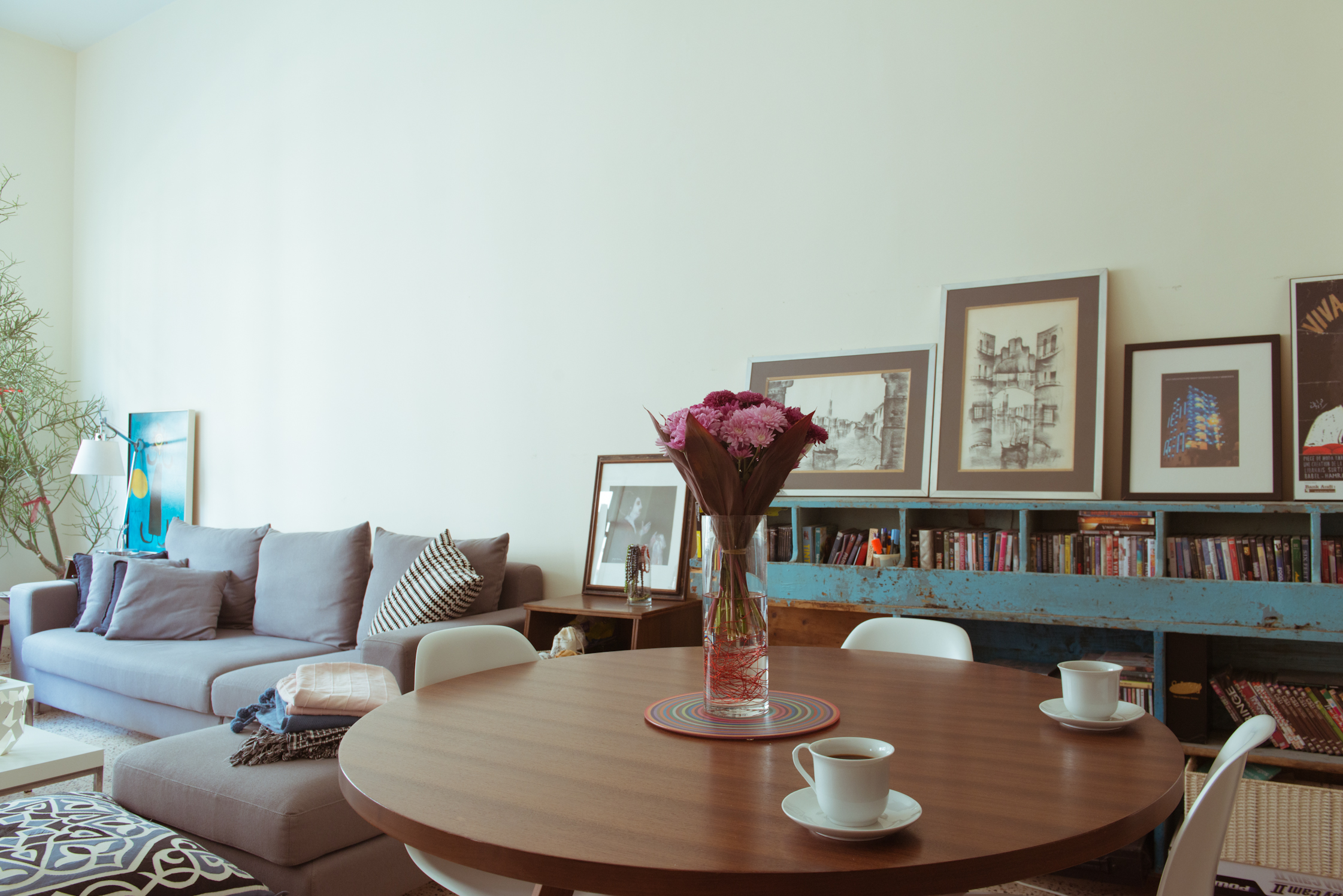
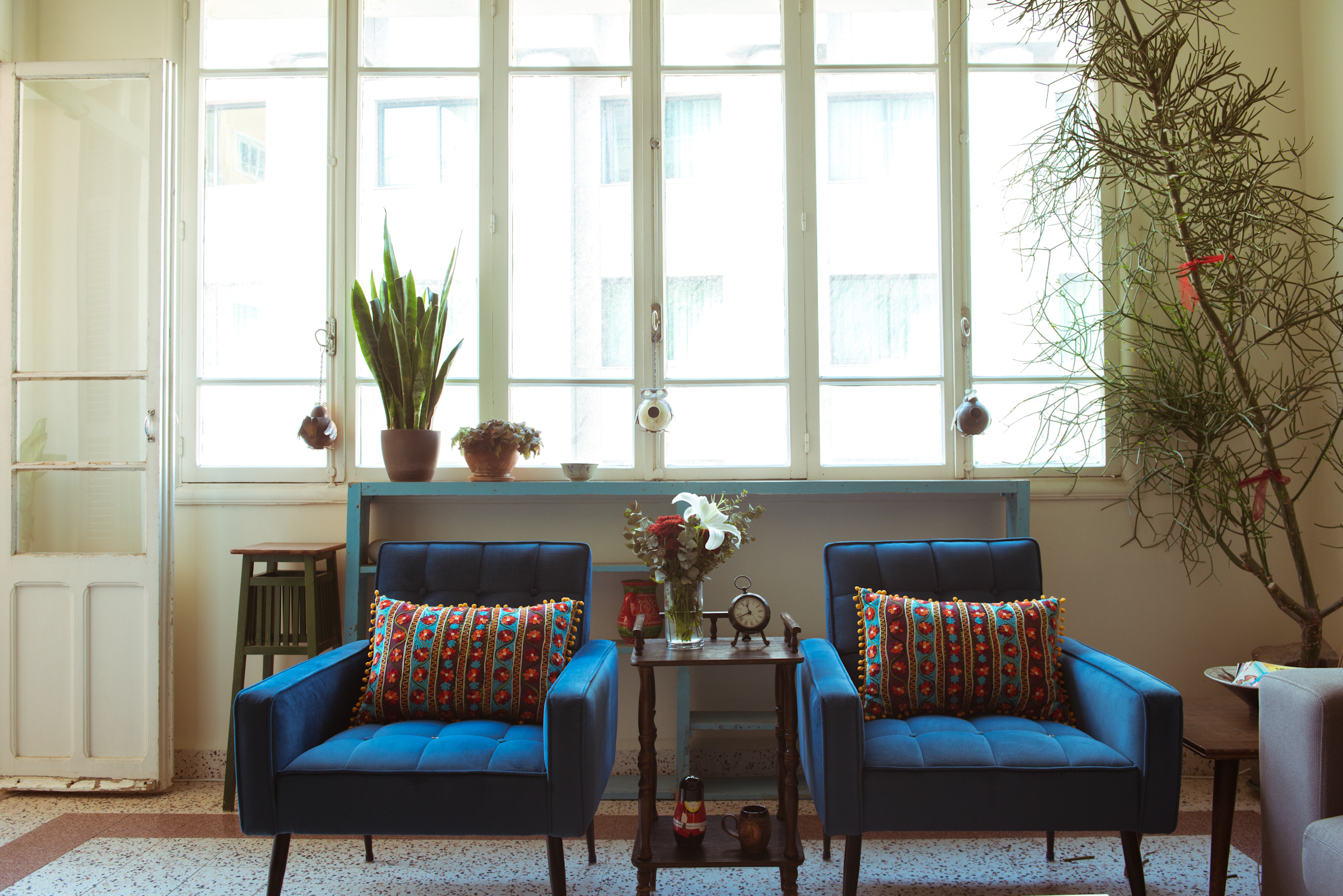
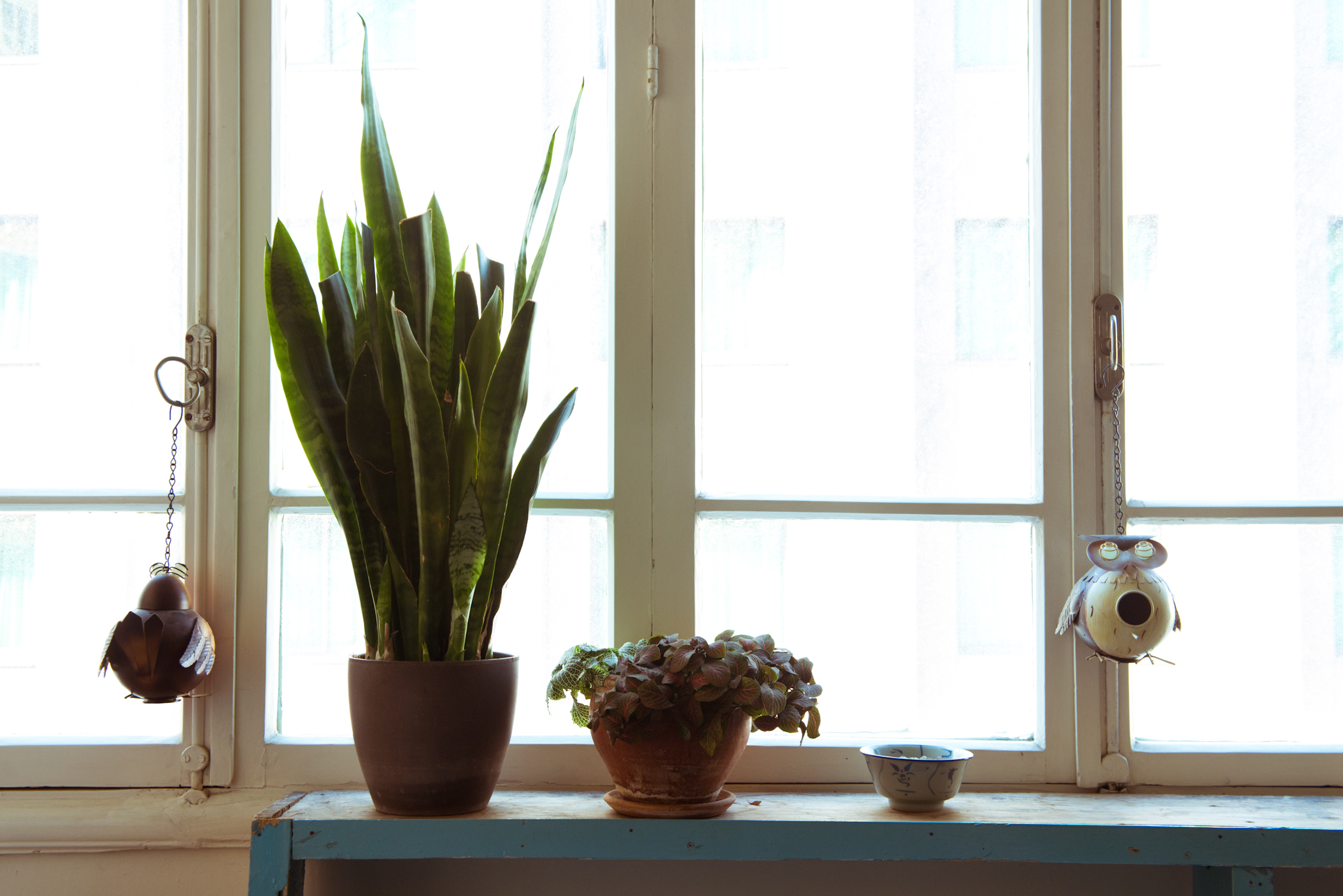
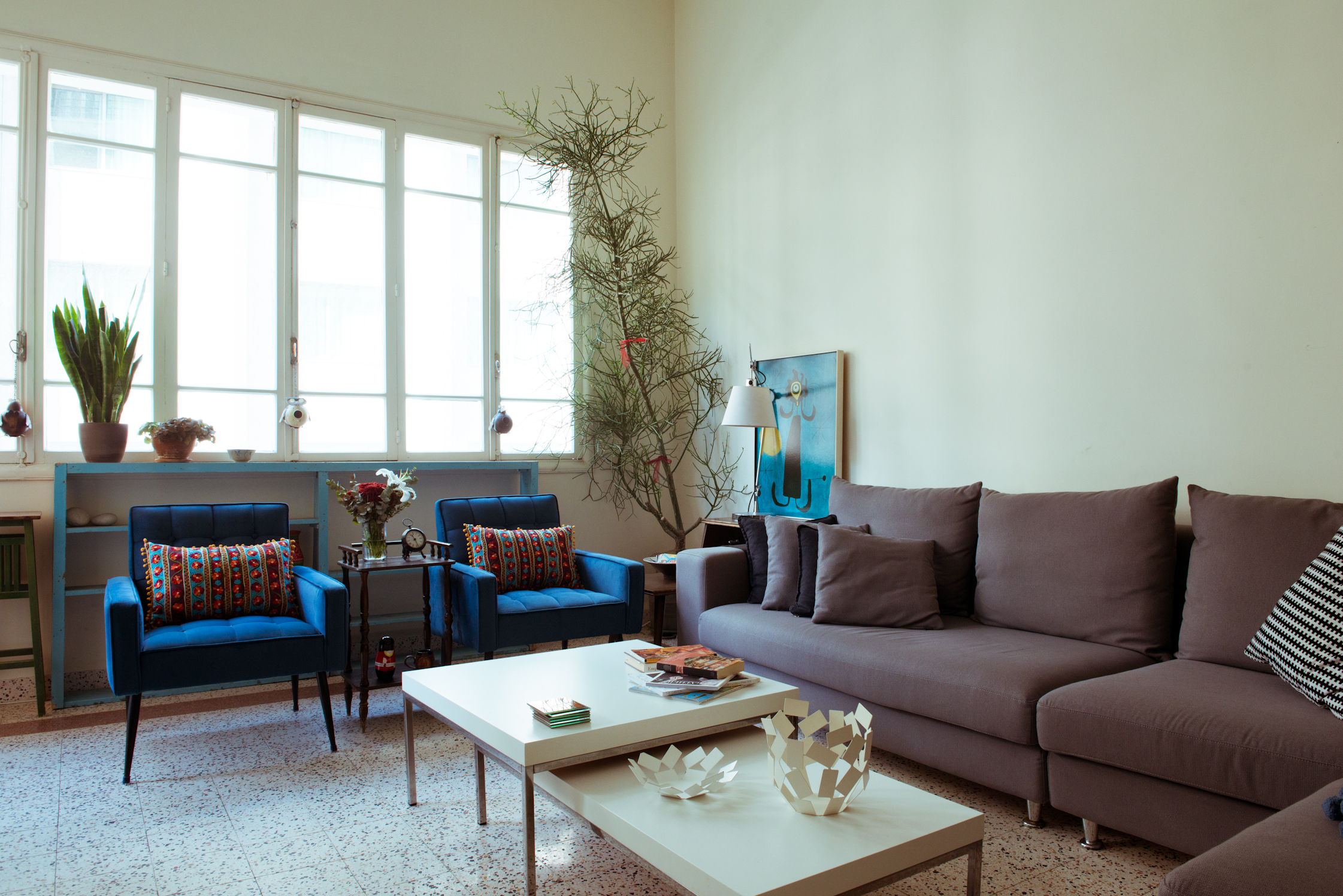
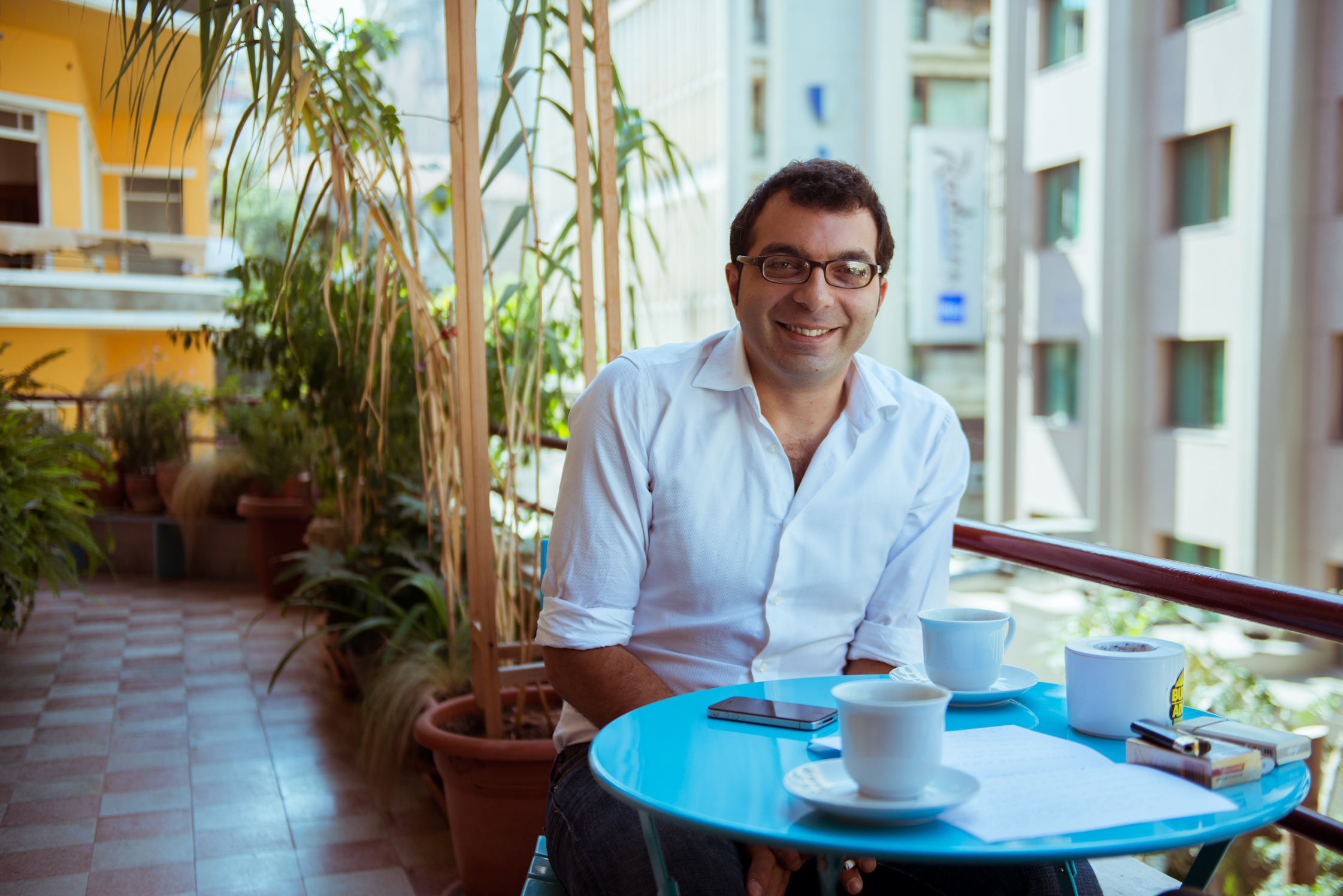
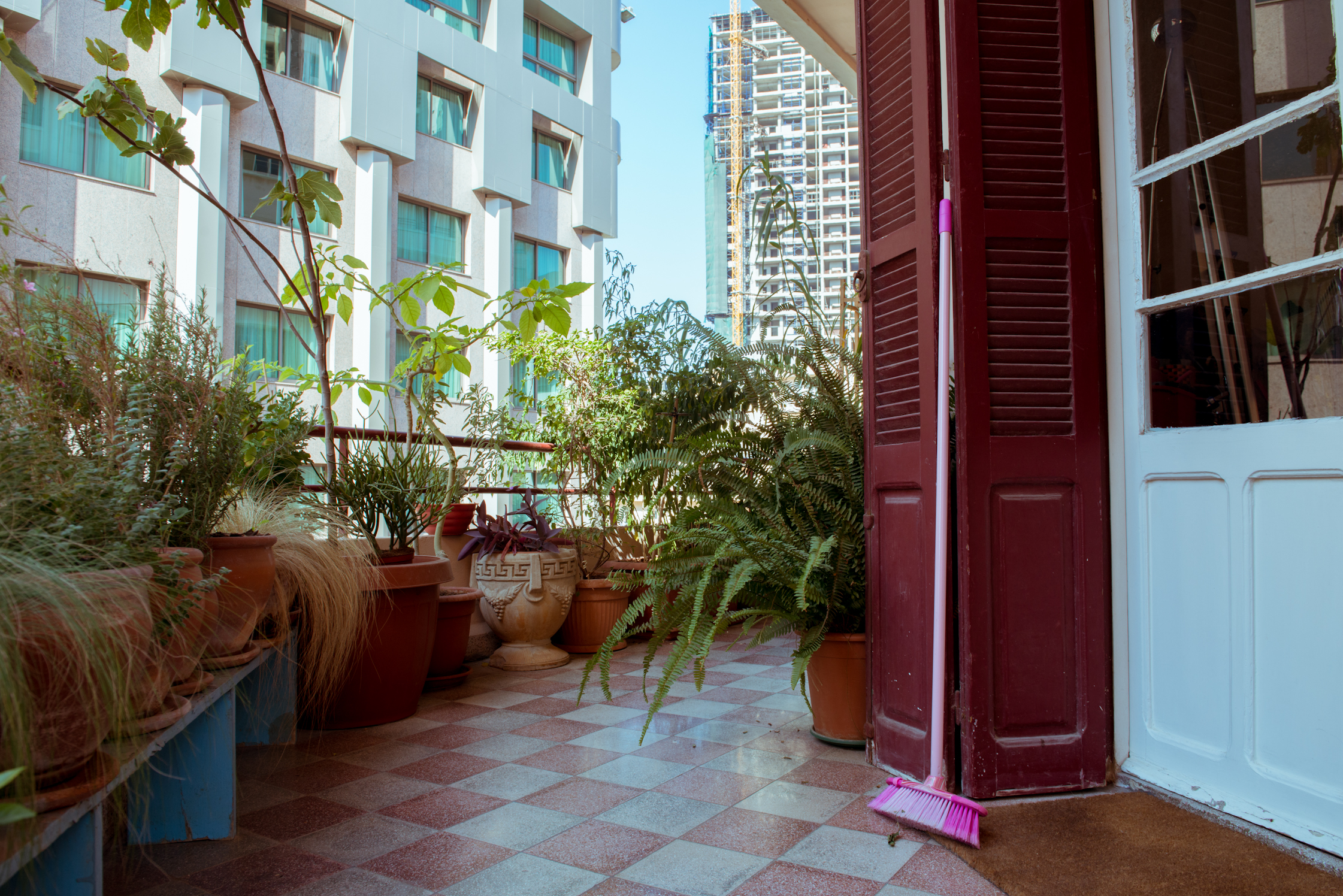
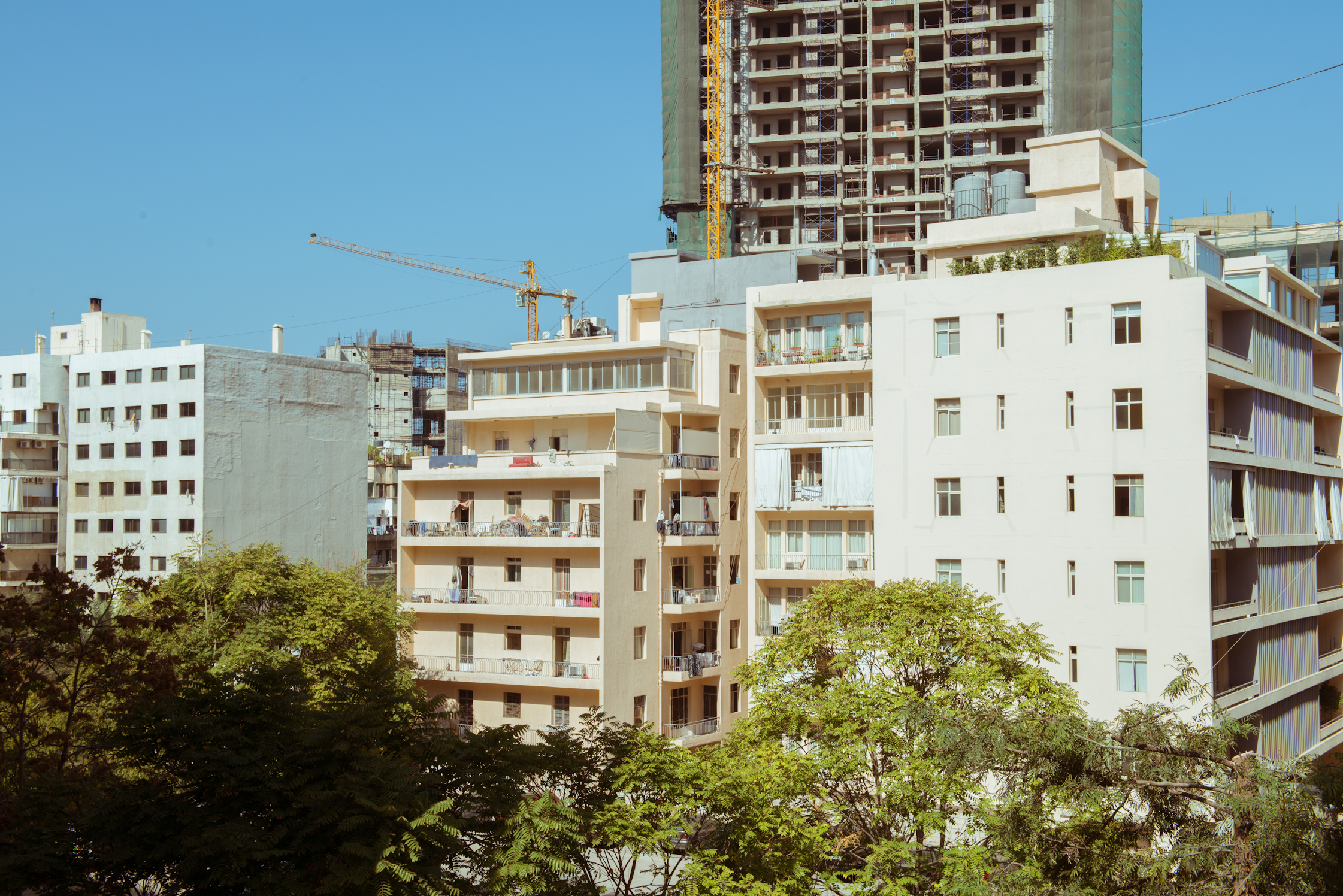
What’s the story of the trees?
The landlord actually cut them. I guess he did it so he could highlight the building and possibly get more people to rent out the apartments.
And you’re mad about that?
Well yeah. There’s so little green in the city, we shouldn’t be cutting any of it down. It also acted like a good barrier and gave us a lot more privacy and shade.
You live in a quite unusual neighborhood, could you tell us a little more about it?
It’s historically been the hotel district, and yet today is still not developed. It’s filled with ruins that I find to be very romantic. It feels as though the war hasn’t been erased from this area, and the buildings are relatively old and give an impression of what the city was like before.
Do you like living here?
I really like the area. This street feels as though it is left on its own with it’s red-light
district sort of character. Today it still is very much off the map in Beirut. A very random mix of people live here, and lots of foreigners come and go. You’re always left alone. It doesn’t feel conservative and it’s very easy going.
And the apartment?
Well the building is comprised of rather large three-bedroom family apartments, and has Beirut society imprinted all over it. I chose it for that reason as well as the fact
that it’s super spacious, has high ceilings and is so close to the sea, and the rest of the city.
Do you have any favorite belongings around the apartment?
I don’t think I have any specific favorite pieces. The whole house is a collection of things that are valuable to me.
What defines the style of your home?
I would probably say the 50s and 60s, the golden era. We get old pieces of furniture and clean them up; things that have character and have stories and history embedded within them. Combined with a lot of new furniture pieces, I think you end up with a pretty little twist.
Where do you find the furniture items?
There’s such a wealth of them because so many old building are unfortunately torn down. When I lived by the infamous Union building in Sanayeh, there was a building
that was being torn down. We salvaged a lot of things from the houses in it and them here. I think they fit in because they’re true to the age of the building and the style of the house.
What is it like walking to and from work?
I live nine minutes away from Jaï, which is uphill. When I stroll upwards to get to work I pass by old Ottoman mansions and eventually reach the newer modernist
buildings of the 50s and 60s. I love the walk. I’ve created a little village for myself, and I never truly know what’s going on outside of this area.
What is Jaï?
Jaï is a kitchen that mostly functions as a take out and delivery. It’s my laboratory where I conduct experiments that will help me answer the tons of questions that I
have.
What sort of questions?
Well, I’ve cooked all over the world for about 17 years. I’ve always been an ambitious man who is career driven, but at one point I realized it wasn’t necessarily helping the food. I had questions about my ability to build a team of skilled cooks, finding the right suppliers, the right farmers. Would people like the food? Would I be able to
manage the place?
I’ve always been a cook, but now with Jaï I’m also a manager, and Jaï is my little lab.
What does the word Jaï mean?
Jaï as a word means light, in ancient Sanskrit. There’s also a debate that it means victory, which I personally don’t like. But the idea of light I think is more compelling.
Today it’s only still used as a term of respect, for gurus for example, and sometimes as a first name. I personally love the word.
And who are you? How would you define yourself today?
At this point in my life I’m somebody with a project that revolves around food and people. I’m trying to make that happen. I’m someone who is trying to make a good
life for the people working with us, and I find that many chefs and restaurant owners in Beirut today fail to do so.
Why is that important to you?
When I first started, food gave me life. It was and still is a passion, and a source of living. With Jaï, we’re creating a social experiment where ideas happen, the food
comes out the way it should, and the twelve employees are all a core part of every aspect in the project.
And hence a kitchen, not a restaurant?
Exactly.
Are there any plans to expand anytime soon?
I don’t know… I think at one point the staff will become skilled enough to be left on their own a whole lot more, but not just yet. I don’t want to lose the quality. I’m not in a rush, and I’m not running towards a restaurant. I’ll let it grow on its own.
You’ve opened a kitchen that directly opens out onto a quiet street and passers by. What qualities do you think an open kitchen has that makes it more attractive to you than a restaurant?
I’m a little obsessive. I’ve seen so many people dilute themselves by having to worry about a hundred things. I didn’t want to fall into the same trap. So I built a little
space that has no walls, that’s open to the street so everything can be easily micromanaged. Everything is right there in front of me, and when everything is visible, you can see what’s wrong and directly fix it. The cooks, the cleaners, the reception are all part of one team that work together.
So you’re the god of your kitchen?
Well I’m pretty much everywhere, but truly I’m here to learn. There will always be something fruitful to learn and I’m trying my best to grasp that.
Why did you choose to locate Jaï in Kantari, a more toned-down and residential neighborhood, instead of the close-by and bustling district of Hamra? What’s special about the area?
I love the street. It’s very green, and very quiet. I wasn’t worried about the amount of exposure the shop would get as much as I was in creating a charming space. That’s why I chose the storefront. It’s in an exquisite old building in a calm area. I don’t want the business to dictate the decisions I make. I want the quality and the charm of the food to dictate my decisions. That’s important to me, and I think people have responded very positively to this. We’ve changed the nature of the street. All this in only six months!
You must have formed some strong neighborhood bonds in this process?
Most definitely. I was a little worried about this at first, as I was concerned about invading the space and ruining the nature of it. I didn’t want to mess it up. There was
a bit of a soft negotiation with the neighbors, but we’ve really developed bonds and we have neighborhood regulars now.
What about Haigazian University; what’s it like having students as neighbors?
We’re always up to date with a lot of students and their semester exams. We even worry with them!
So you’re not only omnipresent, you’re also at Jaï all day long…
That pretty much sums it up. I’m at Jaï to open up in the morning, and I leave as soon the shop closes down at night.
Let’s talk a little about cuisine. Wael and food; a love affair?
It’s a huge love affair, an almost unhealthy obsession. It’s all I really think about, although I try not to be so unidirectional.
Can you trace it back to the source?
Weirdly enough I can’t, but my mother says I’ve always been in love with food. I can recall the first times I had specific dishes, and I remember the plates very well.
Many people love food, but that doesn’t mean they love cooking. What is cooking to you?
Cooking is not just an activity, it’s actually so much more. It’s a complete process of choosing ingredients, tracing back their source, and using them creatively and
usefully. Anybody can grab anything and just eat it. But everything in between the initial choice of an ingredient and the way you use it with others creates a completely
new outcome. Cooking is everything to me.
How did the story of teaching cooking begin? And why do you enjoy doing it?
I used to teach cooking mostly at home. And I’m hoping to carry on doing so at Jaï. I just really enjoy doing it, and unfortunately I believe that it’s slowly beginning to die
out in society. People are scared of cooking. I think the essential thing to do is make people comfortable with it and enjoy it. It’s like a whole new world to people who
don’t know much about it.
What is your favorite ingredient?
When you start cooking, you don’t think of it that way. Every ingredient has it’s own character, its own properties, and different ways of being used. But personally, I’m
very much into lemongrass. I think you can put it in almost everything. What blows my mind is the process of food and flavor production. It’s amazing. It’s like good wine; it’s not just about the product. It involves such a long process with seeding, planting, harvesting, juicing, fermenting, and ageing etc. The grapes are the core ingredient, but the process turns them into a final product.
Do you have a favorite color pigment used in food?
I love green. Coriander, parsley, and lettuce all get to me. It’s a beautiful color that you’ll find in most of my plates.
Your favorite flavor?
As a cook you become so familiar with flavors that you start seeing schools of thought into how to use them. I was taught in European cuisine with a certain way of
mixing flavors that remains quite reserved. I really got into Asian food because it was the complete opposite of that. It’s more about trying to create one flavor from many different flavors. Creating a whole new entity, and that’s what I love.
Tell us a little more about the menu, and why an Asian flavor and twist to food is what you offer?
Because it fascinates me. To me at least, it’s a new way of thinking and cooking. Jaï’s menu can be defined as the all-star hits from South East Asia. It’s a selection of my favorite food from the region; kind of like a popular overview of the cuisines that I thought people would love. It’s not just Thai, or just Indian. It’s a diverse mix of
Asian cuisine that introduces people to the different cultures of food in Asia.
Your space is the kitchen, and your kitchen is Jaï. What is your kitchen like at home?
At home the kitchen is more like a coffee station. We barely use it. The house is made up of three roommates at home and we’re all very busy most days of the week so we rarely use the kitchen at home.
When you’re in Beirut and have free time, where can we find you?
Mostly at work, actually. I can’t even think of other places I go! I sometimes hang out
in Mar Mikhail. But perhaps I spend most of the time in Dora on the Northern outskirts of the city, because there’s such a good mix of Asian food and Asian people, which is quite rare to find anywhere else here. Otherwise I take tons of walks by the ocean on the seaside mostly at night. It’s quieter and a lot more pleasant.
Where do you eat out in the city?
Besides in Dora, I really enjoy eating at Tawlet in Mar Mikhail. I think they’re one of the rare places in the city where food is not just a dish to be consumed but a story to
be told.
You must have traveled quite well. Where do you usually like to go, and is there a destination which has left an impression on you?
I like Thailand for the food a lot; I’ve been four times. I used to work on boats there in the Summer. I pretty much ate my way through Asia.
So you’ve derived inspiration for your cooking from the places you visited?
Yes. I kept on sampling and sampling food to get a more wholesome idea of the kinds of cuisine that is out there.
Where did you study cooking?
I started in London. And it’s there that I discovered Asian food, which then led me to my eating spree throughout Asia. I really like London; it’s such a world capital.
Lebanon is a small country and Beirut can get quite stifling. Where do you go to unwind and get away from the city?
I regularly escape and go for hikes or picnics. Anywhere green really, but specifically the Chouf region for the mountains and climate. The coastal strips down south and up north are also quite impressive.
What are your plans for the rest of the day?
I’m going to cook you a fresh glass noodle salad and prepare a little lunch for you, then carry on making dishes for the people of Beirut!
Thank you Wael for giving us a delicious insight into the world of Jaï. Get to know the Asian delicacies prepared at Jaï here.
Photography: Tanya Traboulsi
Interview & Text: Abraham H Zeitoun
